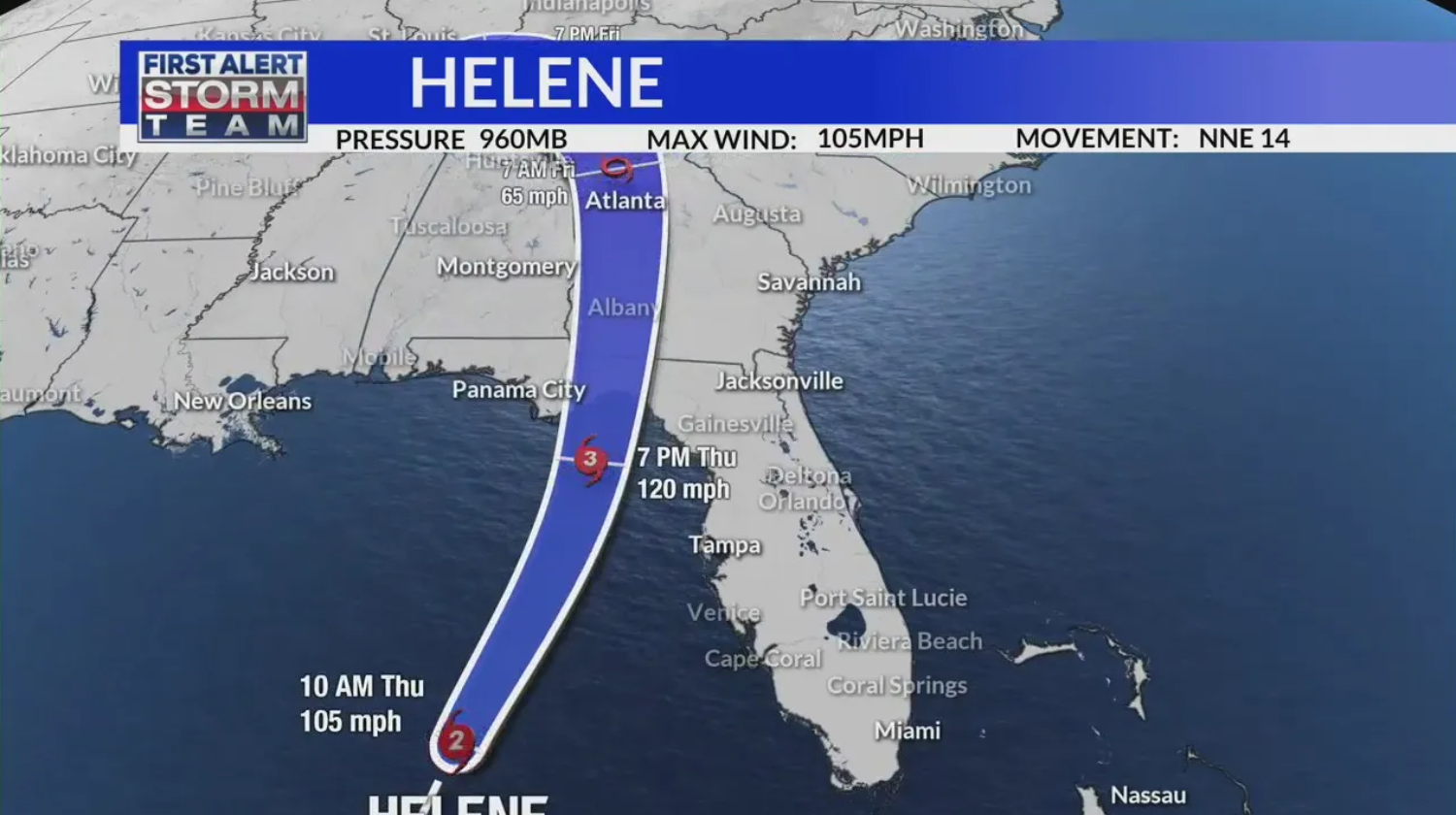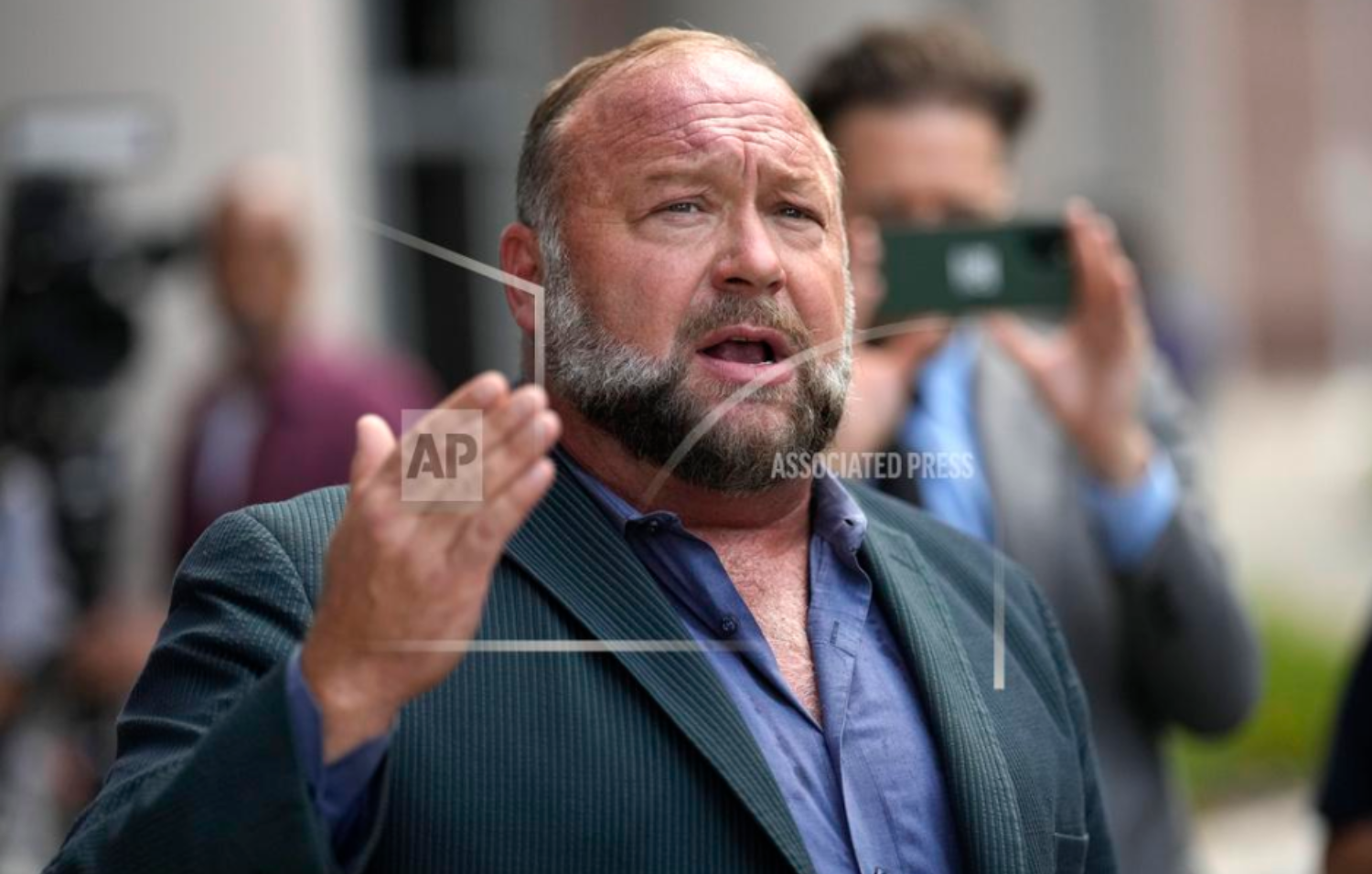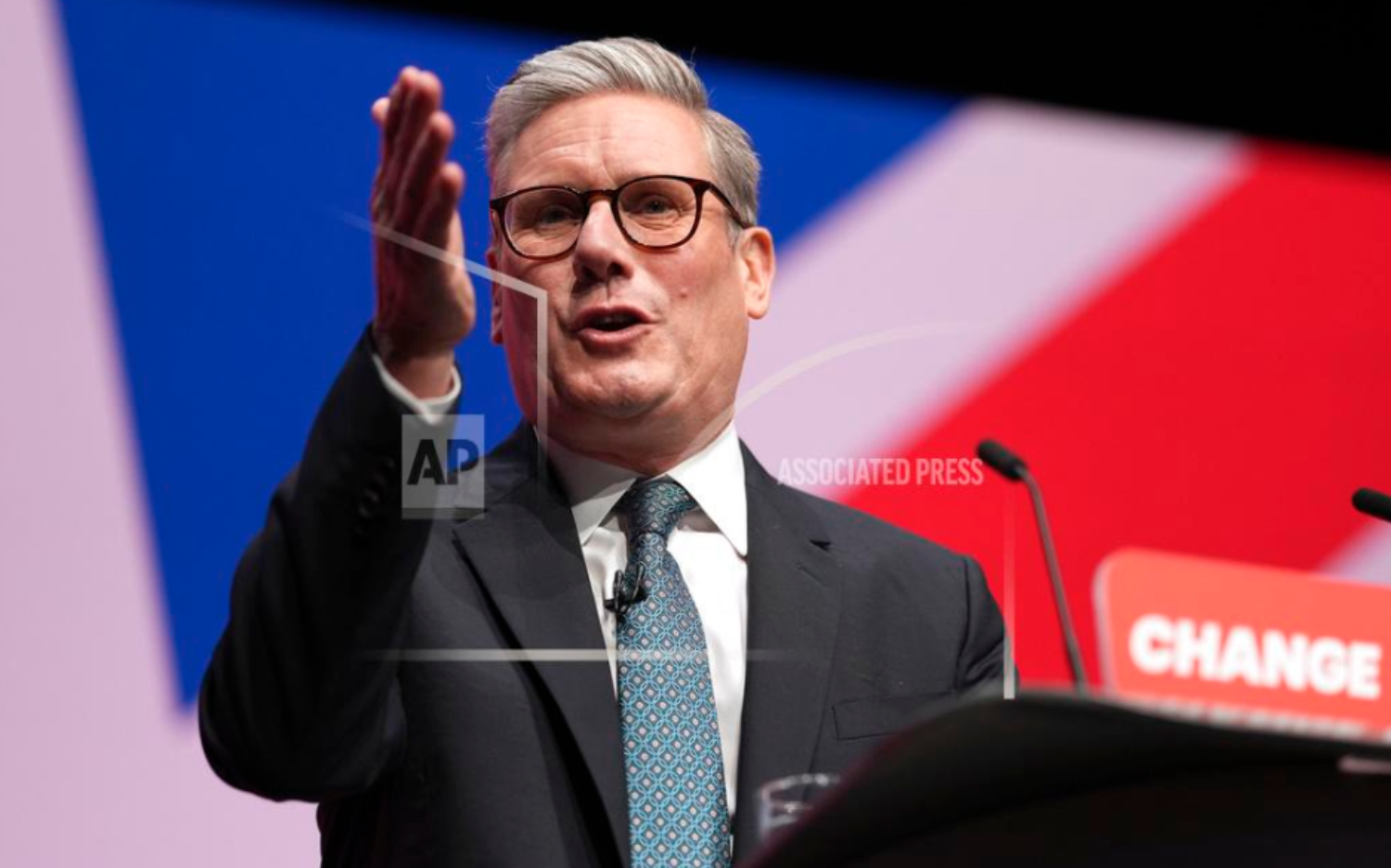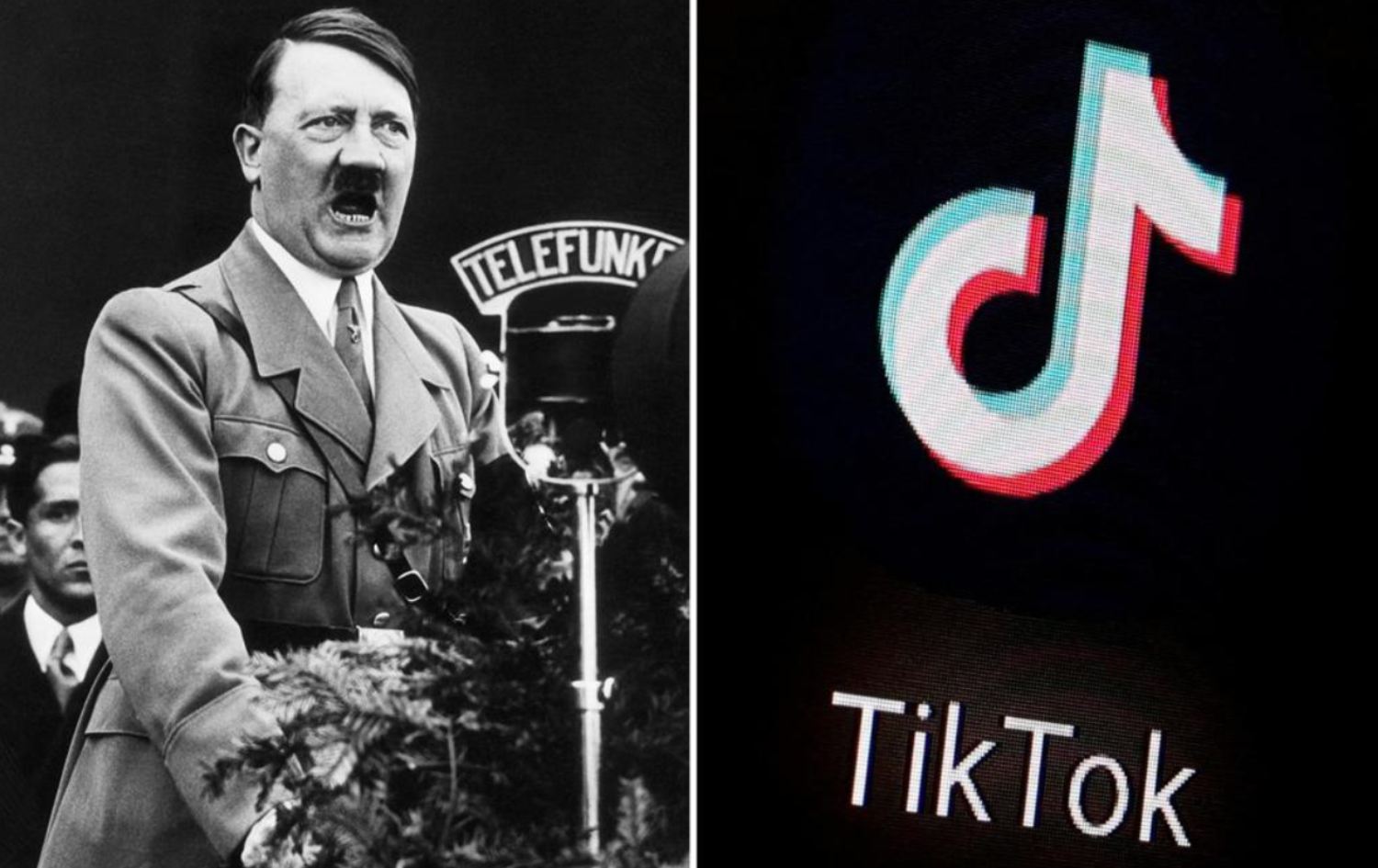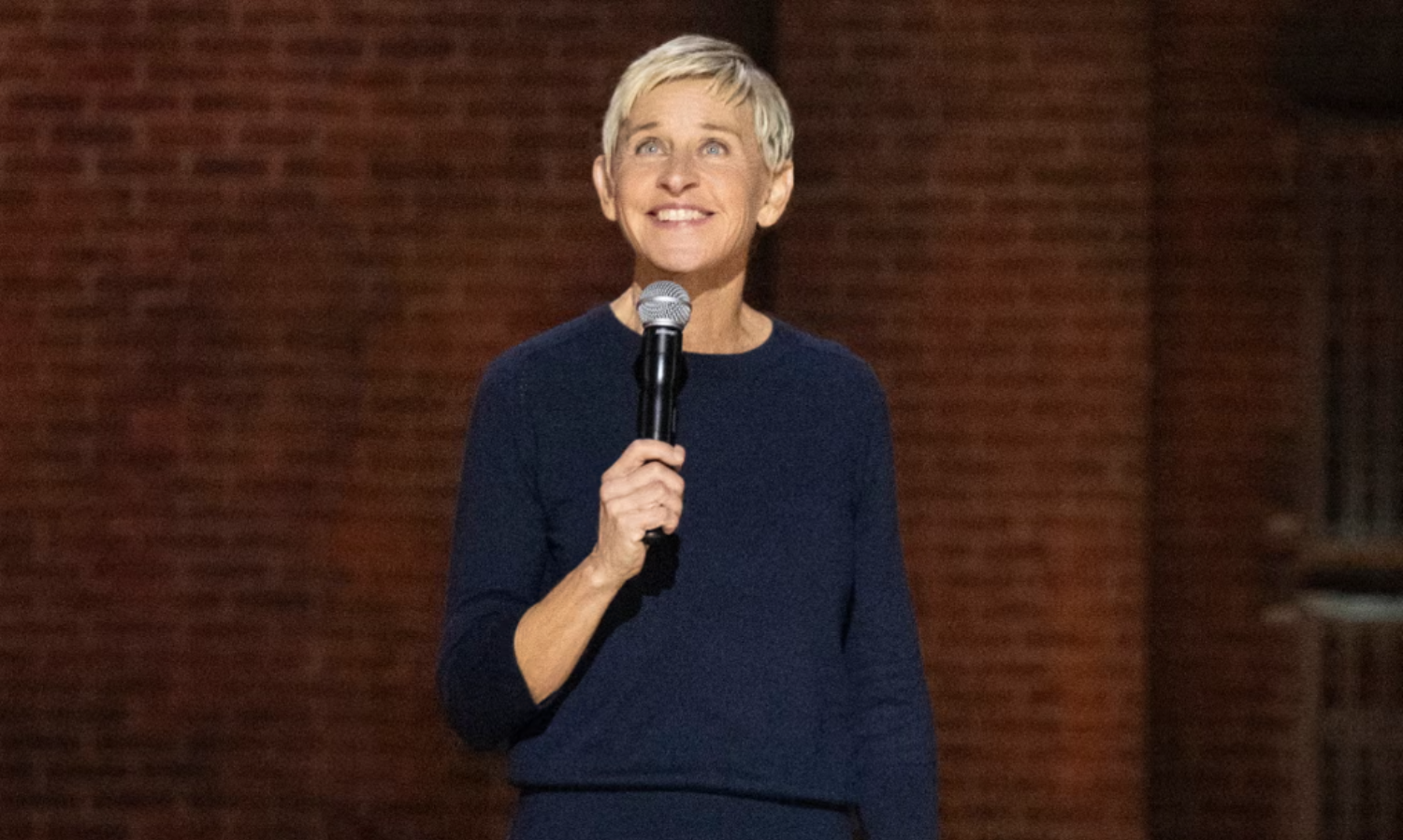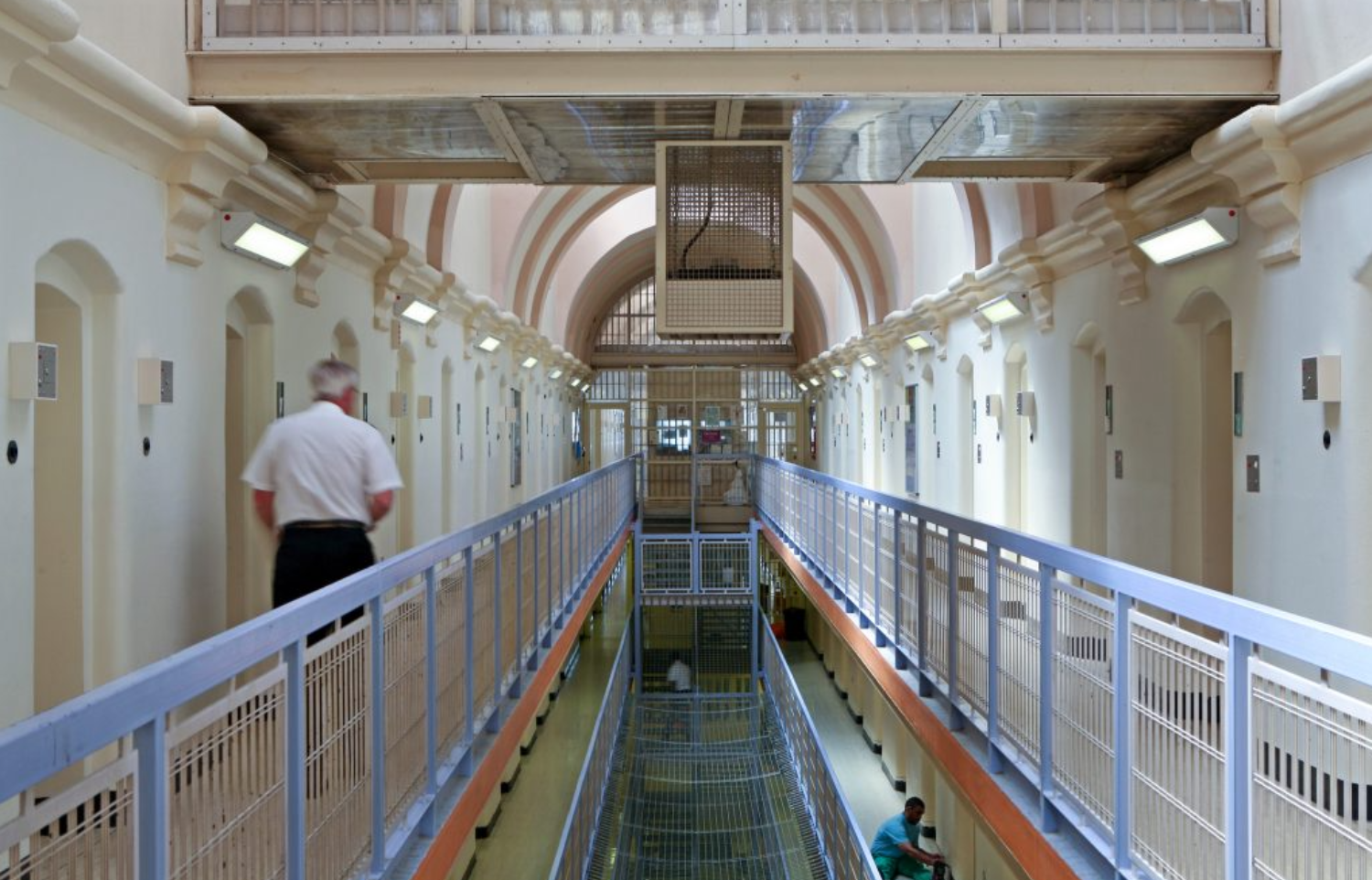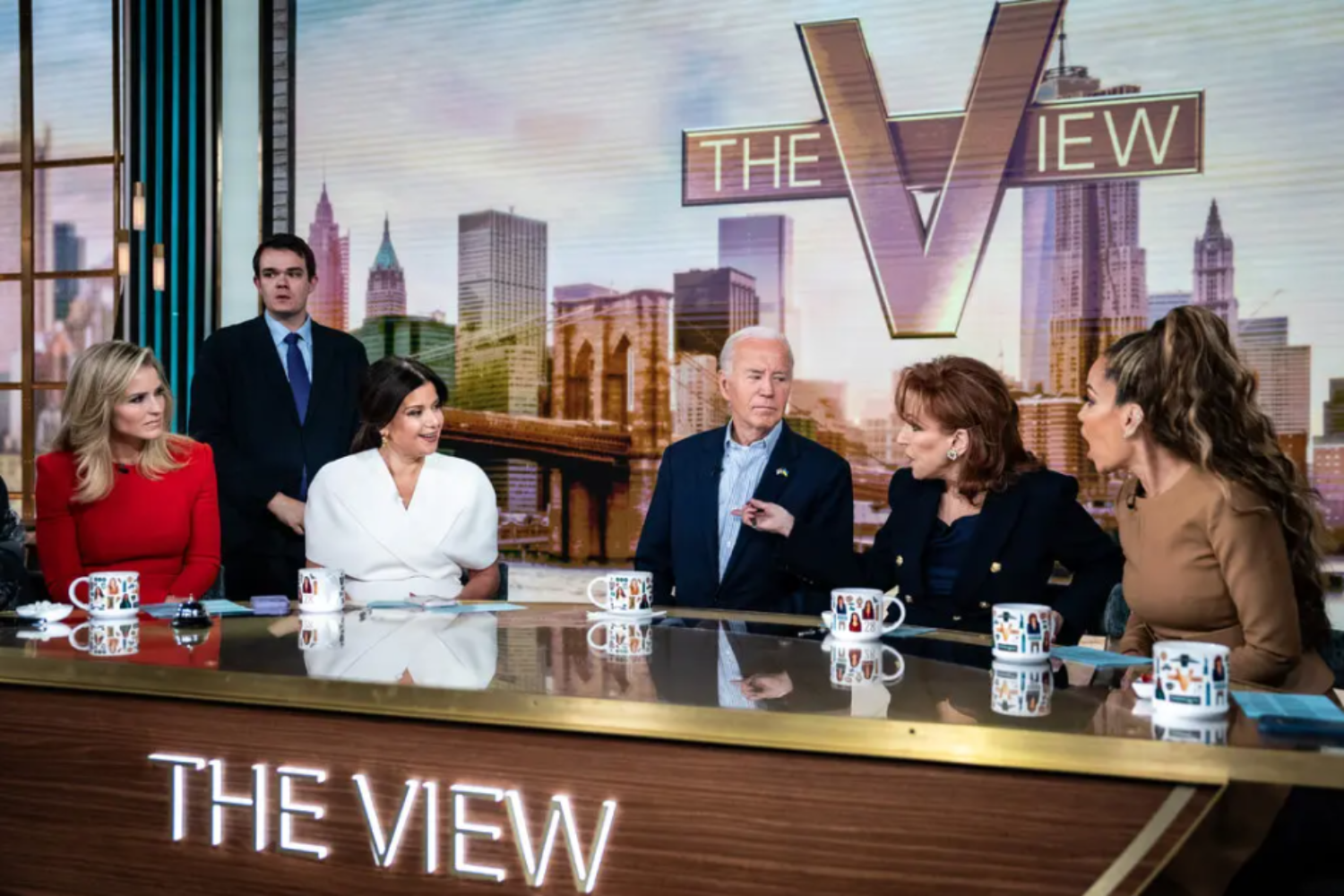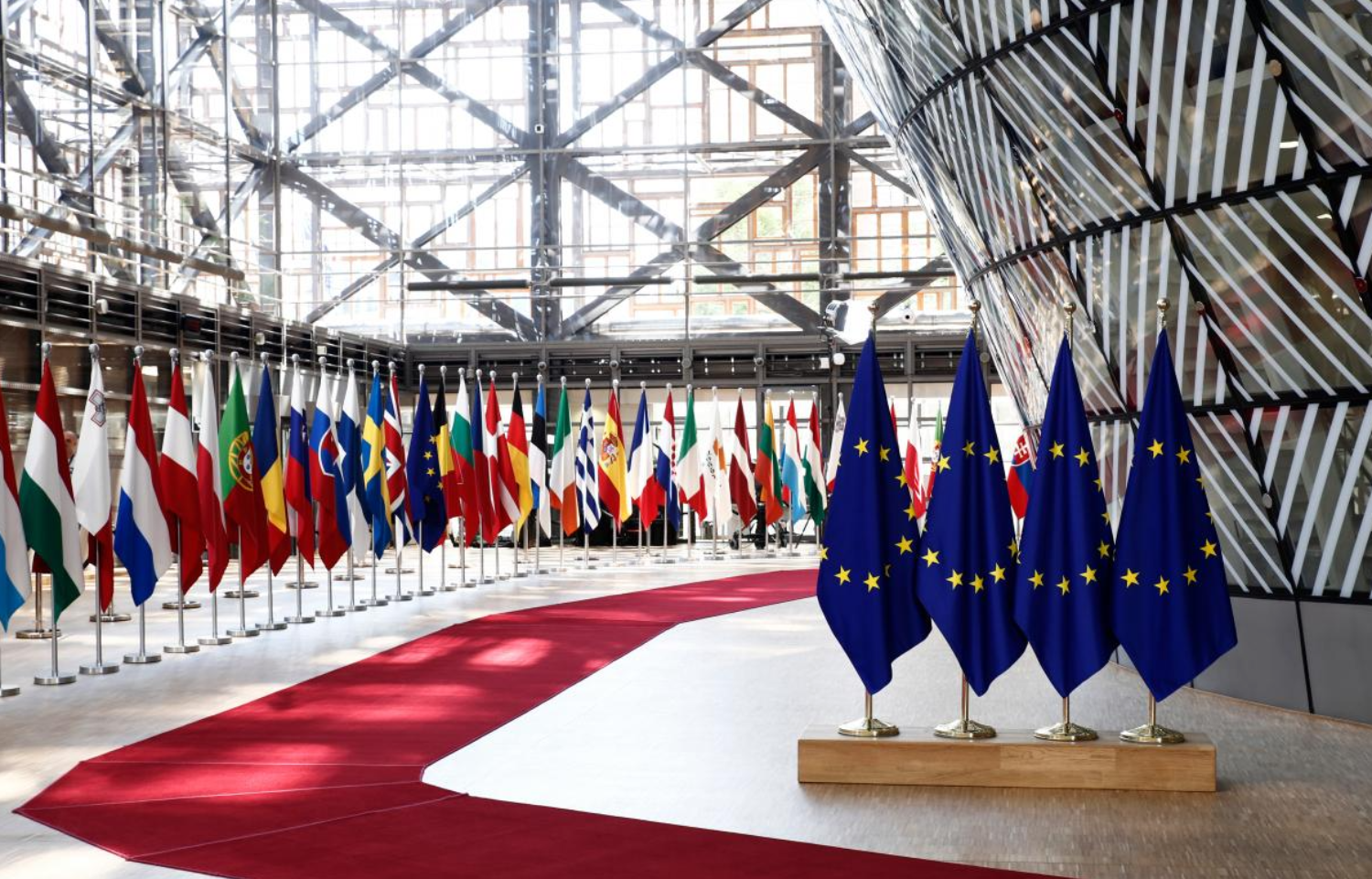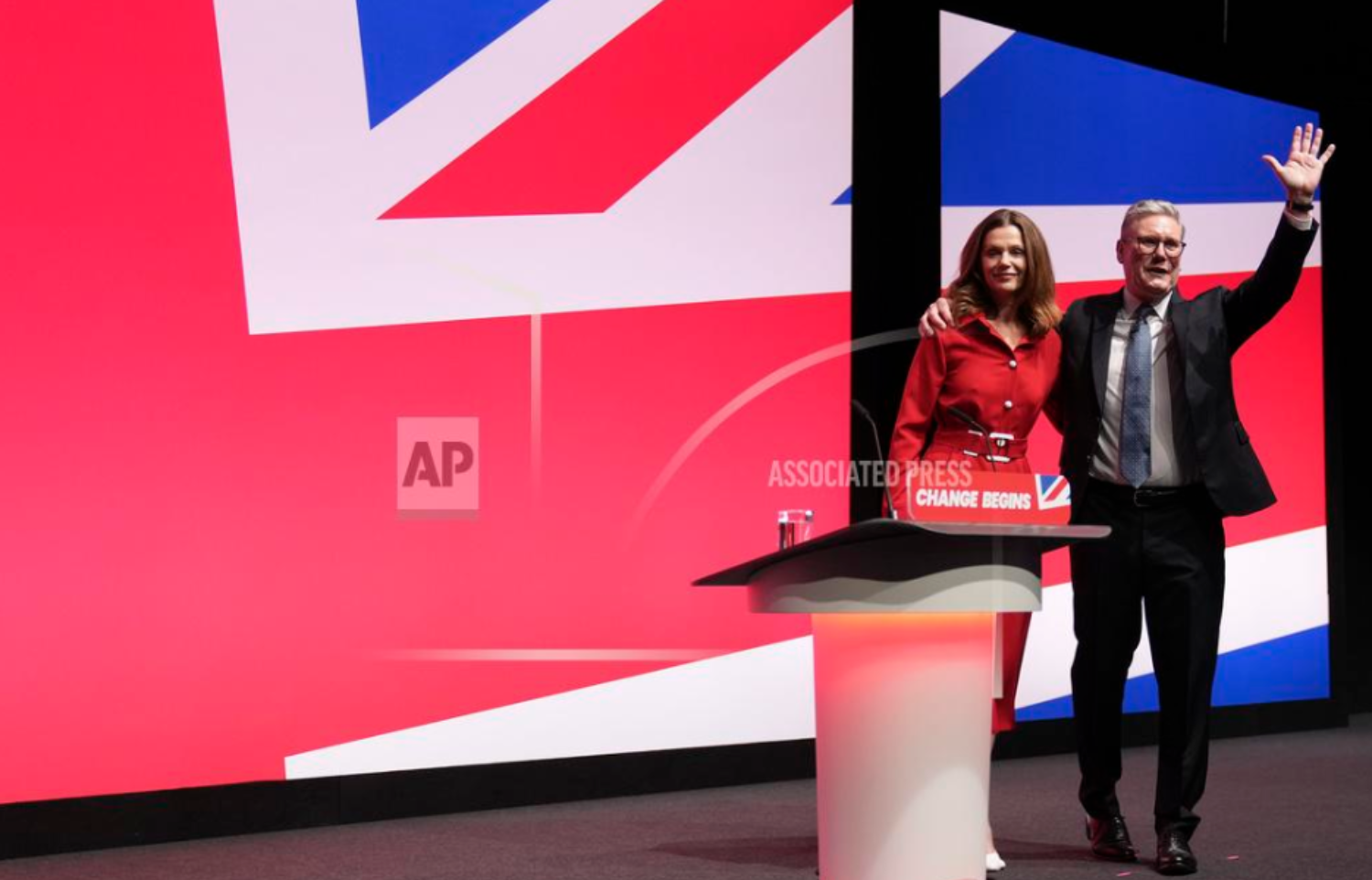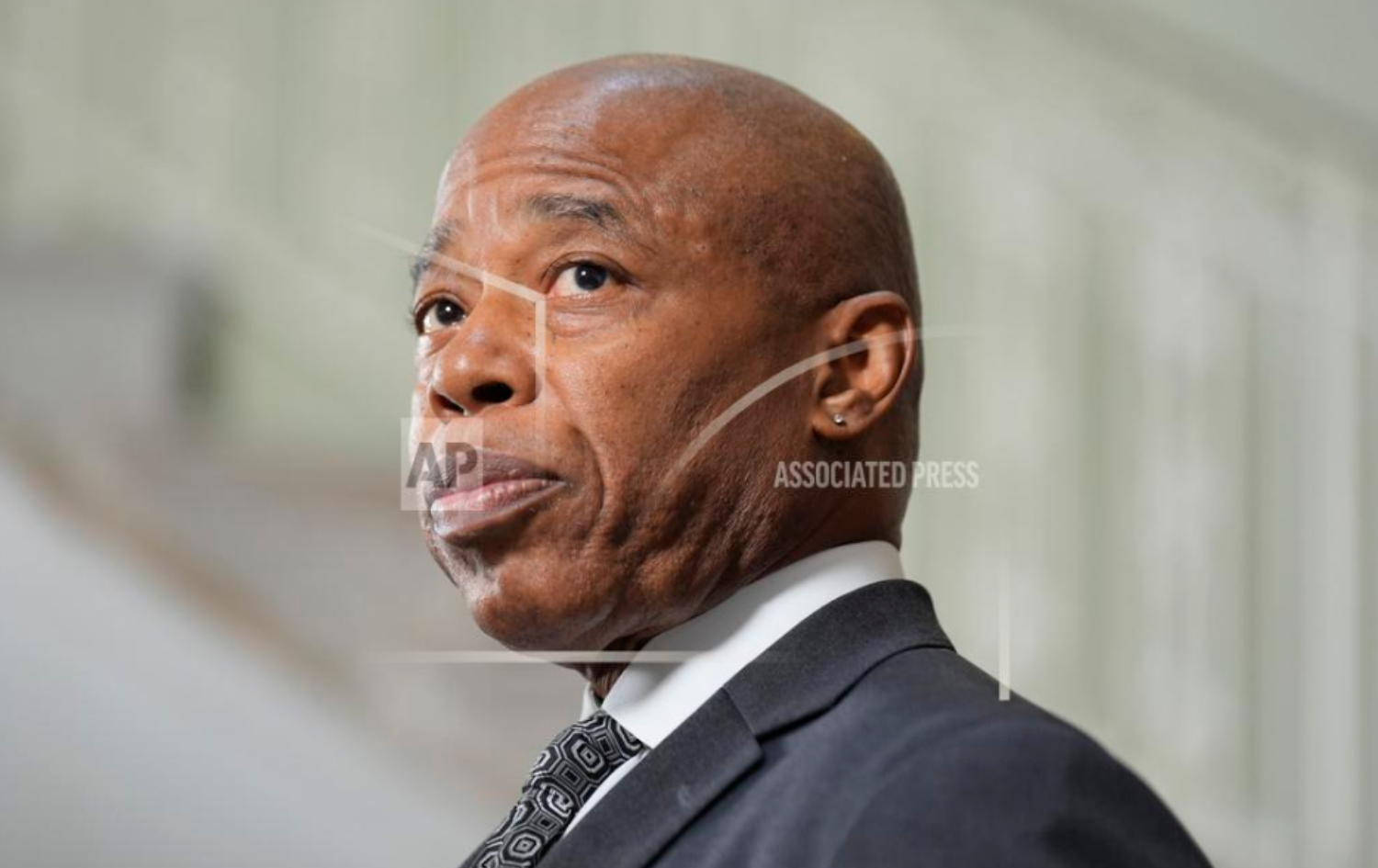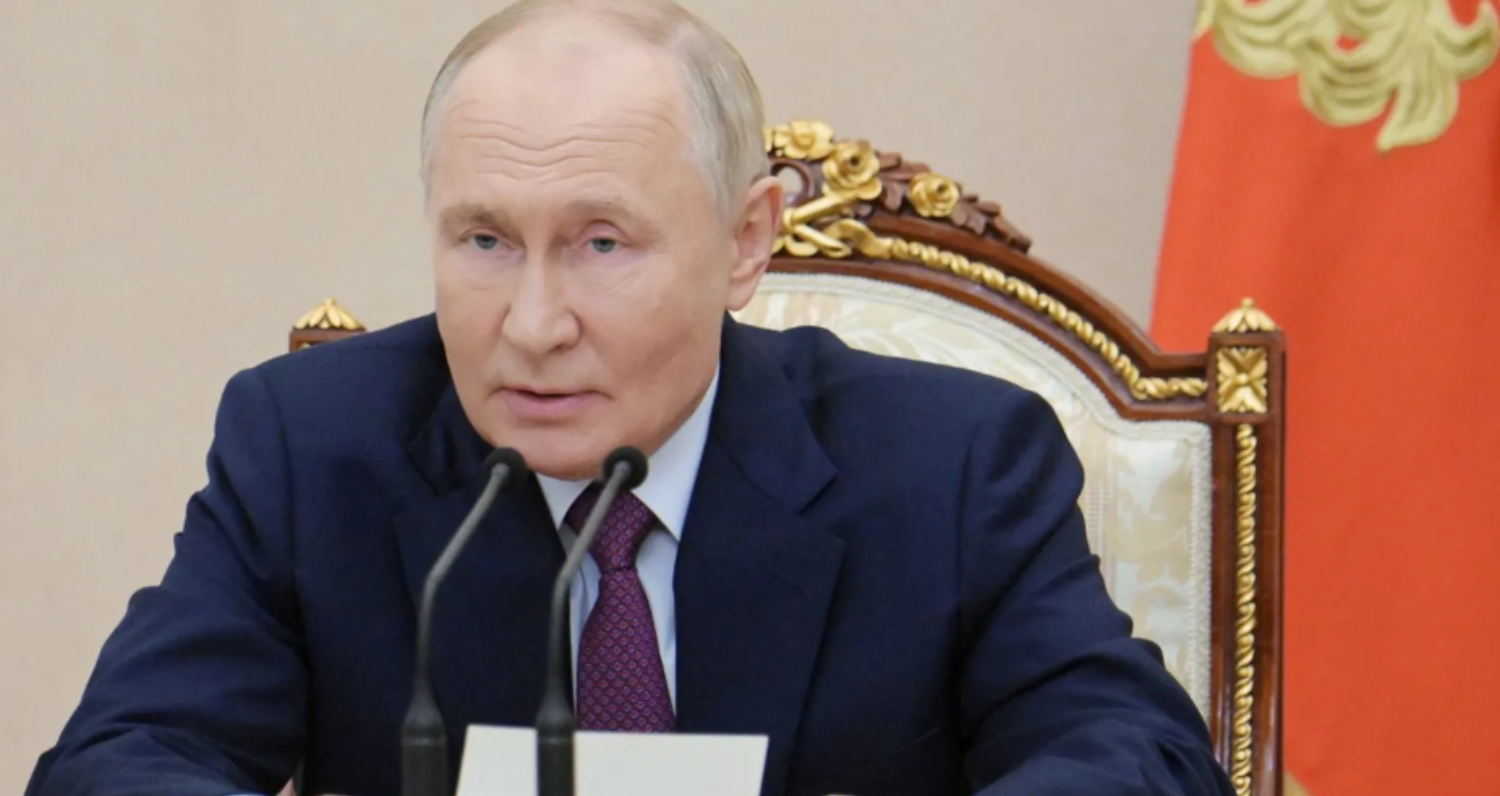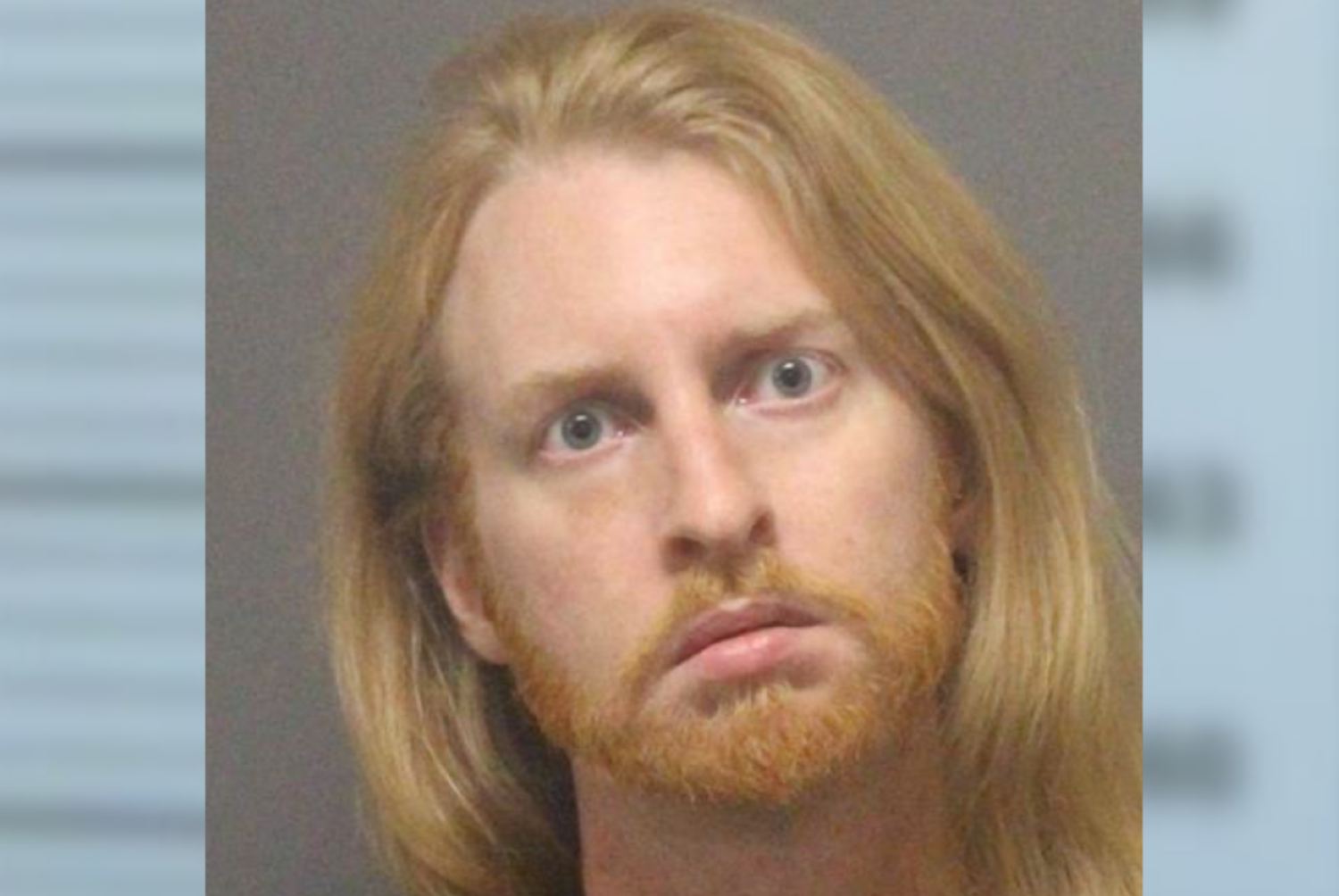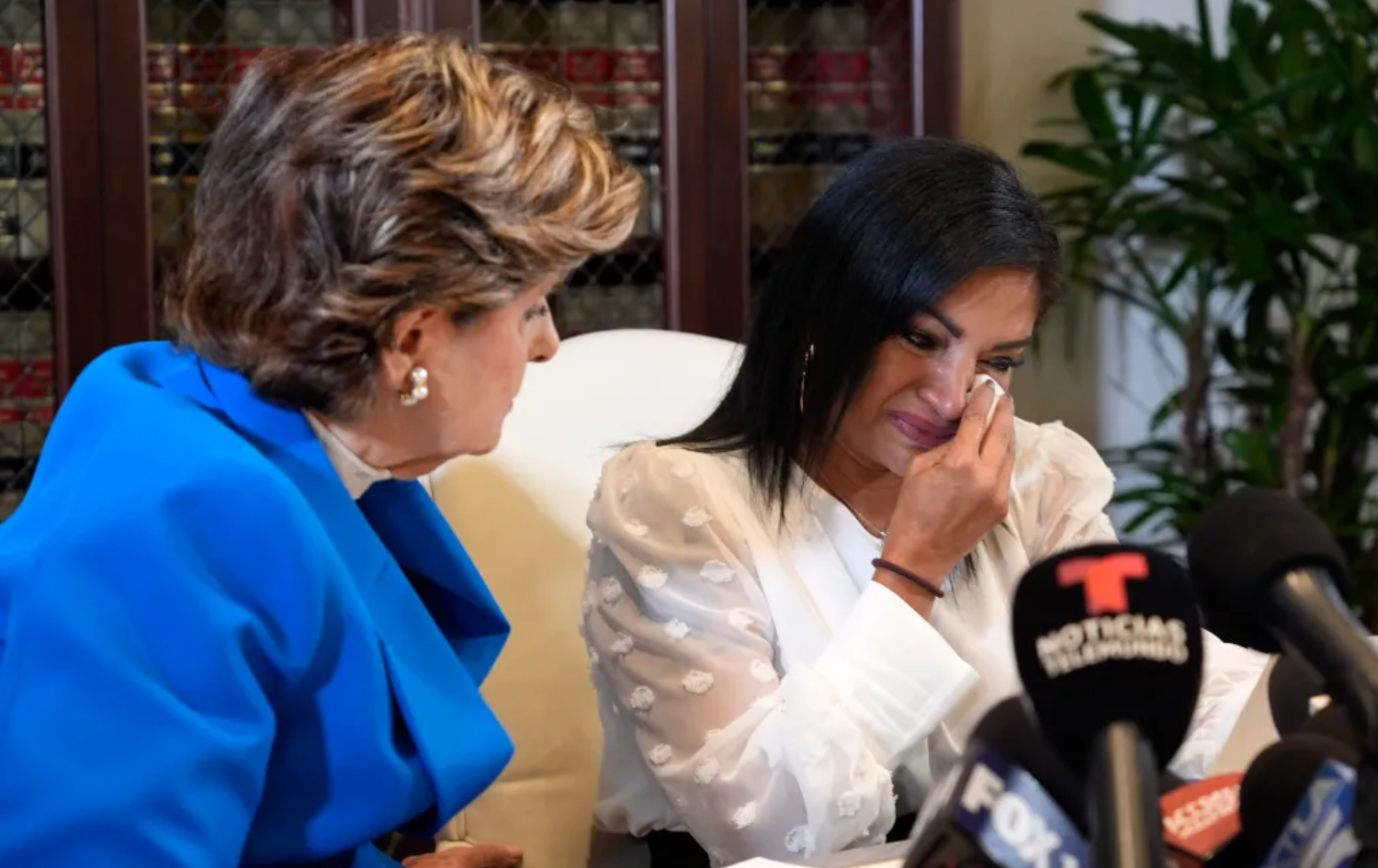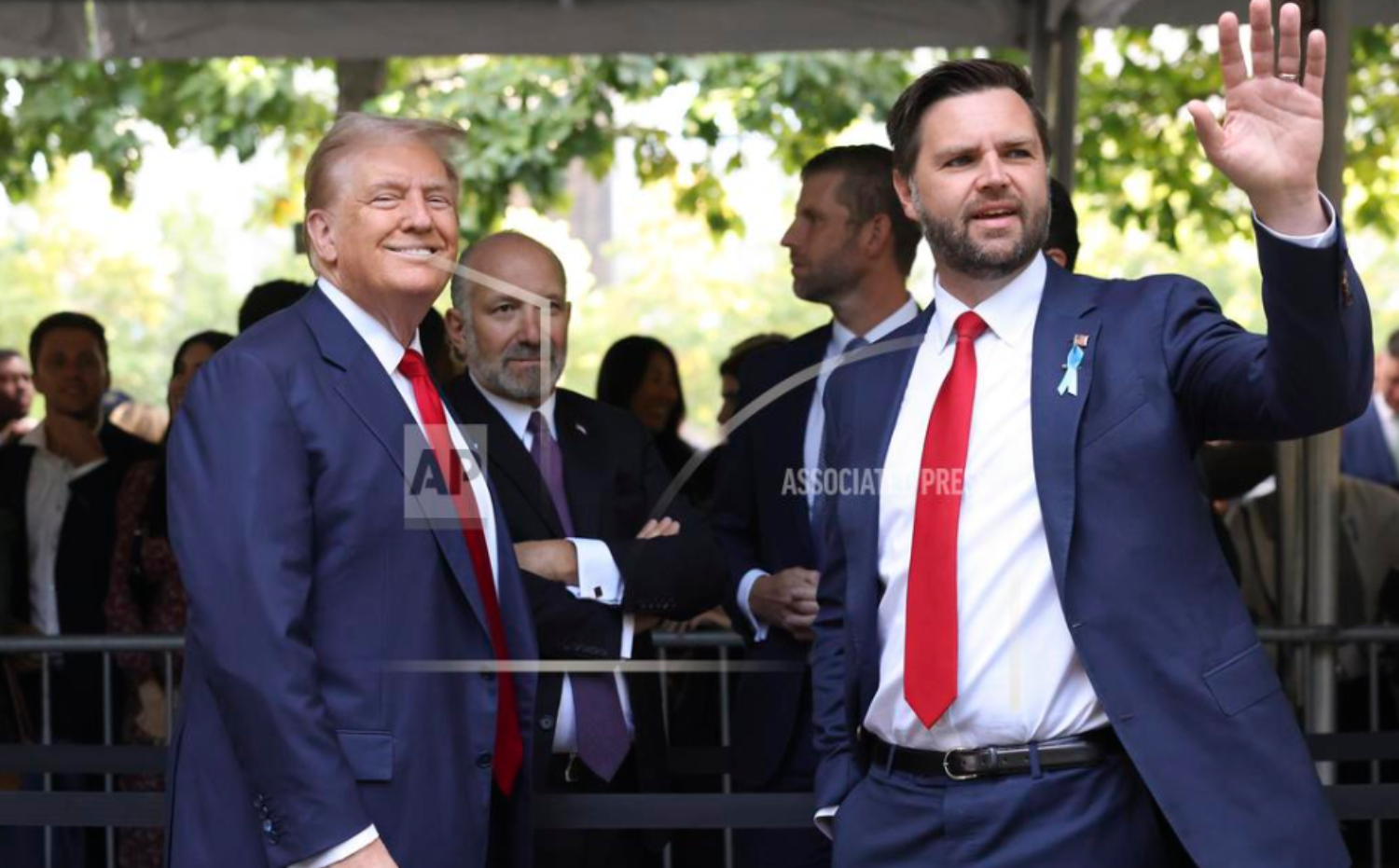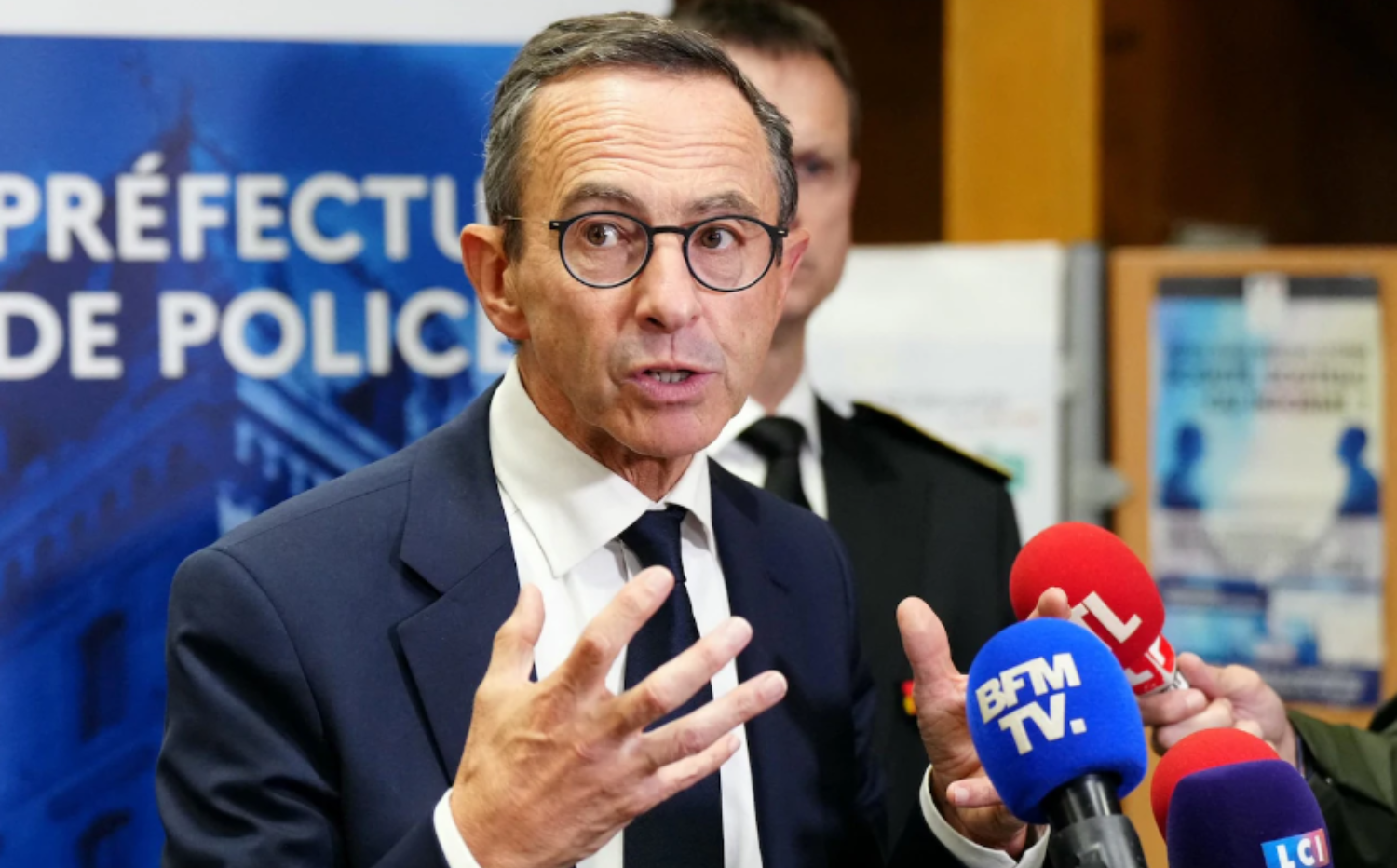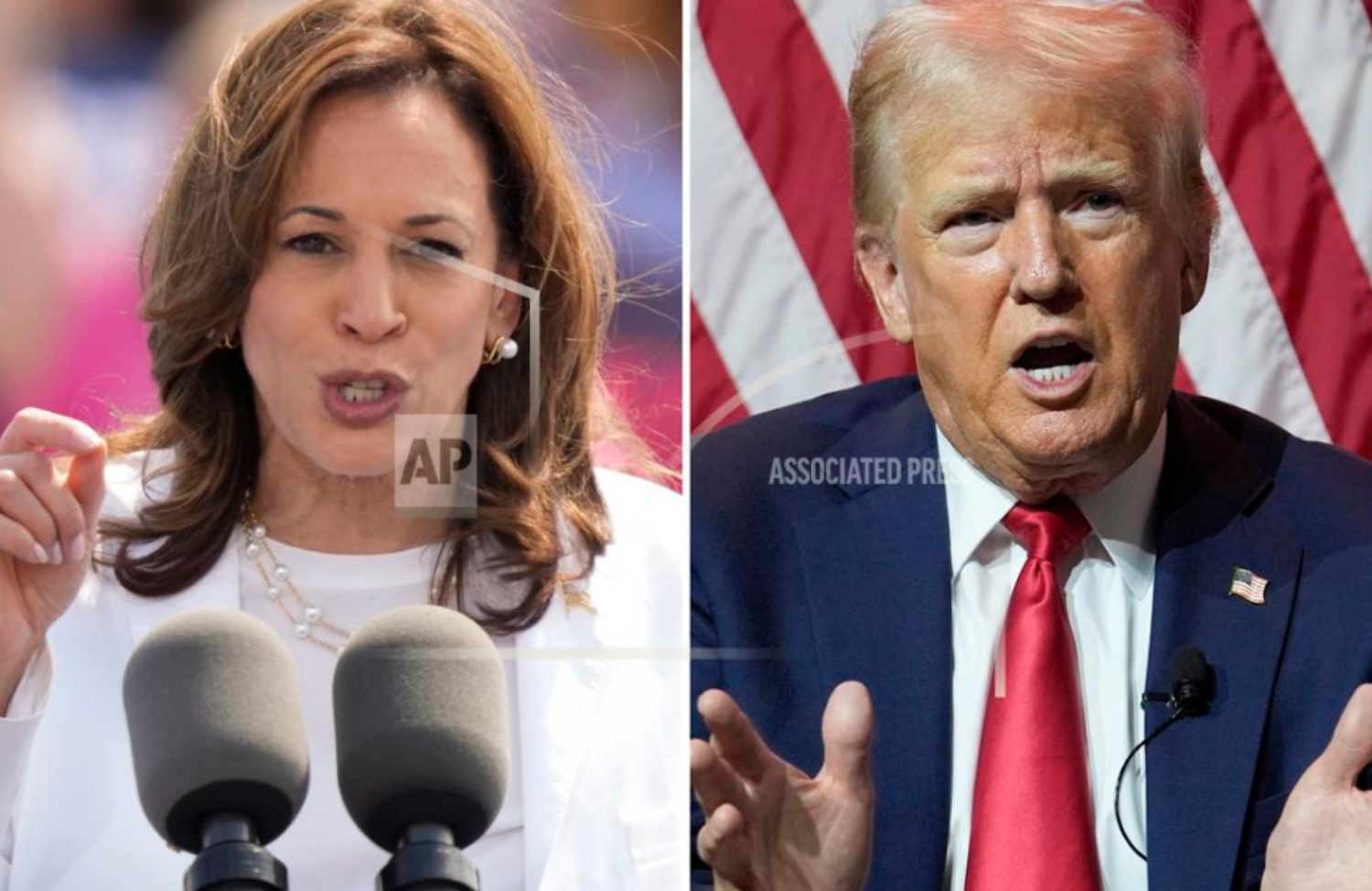-
Posts
10,095 -
Joined
-
Last visited
Content Type
Events
Forums
Downloads
Quizzes
Gallery
Blogs
Everything posted by Social Media
-
Kamala Harris, once a vocal critic of the border wall during Donald Trump’s presidency, now pledges to allocate hundreds of millions of dollars to extend the barrier along the southern border if elected president. This shift comes as Harris embraces a more aggressive immigration policy, a significant departure from her previous liberal positions on issues such as Medicare for All and fracking, which her campaign now opposes. Harris’ campaign appears to be adapting to the pressure of Trump’s repeated attacks on her stance on border security. While Harris now supports measures for the wall, she maintains key differences with Trump, particularly opposing family separation policies and mass deportation plans. In her recent speech at the Democratic National Convention, Harris voiced her intention to sign the bipartisan border security bill, a piece of legislation that Trump had previously blocked due to concerns it would politically benefit Democrats in the upcoming election. The bill, negotiated by Senators James Lankford (R-Okla.) and Chris Murphy (D-Conn.), mandates that hundreds of millions of unspent funds be used to continue the construction of the border wall. Lankford remarked that the bill carries forward the standards set during the Trump administration regarding the structure’s height and location. "It requires the Trump border wall," Lankford told Axios, clarifying that the bill specifies where and how the wall must be built. The legislation’s estimated cost for continuing the wall stands at $650 million, a significant reduction from the $18 billion that Trump originally requested in 2018. However, Harris’ camp argues that this legislation is not a full endorsement of Trump's wall and highlights that it involves much more than just wall funding. Her advisers pointed out that the bill does not allocate new money for the wall but merely extends the timeline for using funds appropriated during Trump's presidency, albeit with new restrictions to ensure these funds are used strictly for barriers. Additionally, the bill includes provisions to address the overloaded immigration system, such as increasing funding for asylum lawyers and judges, and grants the president the authority to close the border if more than 5,000 migrants cross in a single day. This is a sharp contrast from Harris’ earlier stance. When she first ran for president in 2019, she condemned Trump’s wall as a "medieval vanity project" and consistently opposed any funding for its construction. In a 2020 Facebook post, Harris declared, "Trump's border wall is a complete waste of taxpayer money and won't make us any safer." Earlier, in 2017, shortly after joining the Senate, she called the wall a "stupid use of money" and vowed to block any efforts to fund it. Harris' recent support of the bipartisan border security bill has raised eyebrows, even among some of her political colleagues. Senator Lankford expressed surprise at Harris' full embrace of the bill, noting that she had not participated in the negotiations. "We never saw any vice president staff here," Lankford remarked. "I know she's talking about it now, but she wasn't talking about it at all before." Meanwhile, Senator Murphy described the bill as "aggressive," noting that it introduces new tools to manage the border but also emphasized that it does not stray from the nation's core values. Although President Biden had criticized Trump for killing the compromise bill, some Democrats, including Senator Alex Padilla of California, took issue with the conservative nature of the policies within it. Padilla opposed the bill, stating that it "fails to provide relief for a single Dreamer, a single farmworker, a single essential worker or long-term resident." Harris has positioned herself as a hardliner on immigration in her campaign ads, showcasing her time as California's attorney general and highlighting her support for increasing the number of Border Patrol agents. These moves come as Trump’s campaign continues to attack her on the administration’s struggles to handle surges of migrants at the southern border. Harris' evolving stance on immigration reflects how the political conversation around border security has shifted in recent years, largely influenced by Trump’s presidency. Her willingness to support aspects of the border wall is a marked departure from her earlier rhetoric, illustrating the pressures and complexities of immigration policy in contemporary American politics. Based on a report from: AXIOS 2024-09-28
-
Hurricane Helene has rapidly intensified into a Category 4 storm, bringing dire warnings from weather experts and state officials as it moves closer to Florida. States of emergency have been declared in Florida, Georgia, and the Carolinas, with forecasts predicting winds exceeding 130 mph when the hurricane makes landfall. The US National Hurricane Center has warned of a "catastrophic" storm surge, particularly in the northwestern parts of Florida. Residents in Tallahassee, the state capital, are scrambling to protect their homes, stocking up on supplies and placing sandbags around their properties. Tallahassee’s mayor, John Dailey, expressed deep concern over the impending storm, calling Helene "the biggest storm in the history of the city to hit us head-on." Despite extensive preparation efforts, Dailey shared his anxieties: "I’m very nervous, and I hope everyone is nervous." He added, "This is a big storm. It is going to cause a lot of damage." Jared Miller, the sheriff of Wakulla County, which is in Helene’s projected landfall zone, echoed these warnings, stating, "This is not a survivable event for those in coastal or low-lying areas." The county has implemented a mandatory evacuation, but some residents are opting to remain. Christine Nazworth of Crawfordville, located 25 miles from Apalachee Bay, revealed her decision to shelter in place. "I’m prayed up. Lord have mercy on us. And everybody else that might be in its path," she said, expressing her faith amidst the storm’s ominous approach. As Helene bears down on Florida, officials continue to urge those in its path to evacuate or prepare for potentially devastating conditions. The storm is expected to make landfall overnight, with many fearing the damage will be historic. Based on a report from: Sky News 2024-09-27
-
Alex Jones, the infamous conspiracy theorist behind Infowars, is on the brink of losing his media empire. A federal judge is set to approve the auction of Infowars' assets this fall, aiming to help pay the over $1 billion in damages Jones owes to the families of the Sandy Hook Elementary School victims. The families won this settlement in defamation and emotional distress lawsuits after Jones repeatedly called the 2012 school shooting a hoax, triggering harassment from his followers. Despite these legal blows, Jones remains defiant, promising to continue his show through other platforms. Jones' financial troubles began in 2022 when both he and his company filed for bankruptcy following the devastating legal judgments against him. In civil trials in Texas and Connecticut, the families of Sandy Hook victims testified about the intense pain and trauma caused by Jones' false claims. Parents described the harassment they endured, including being confronted by people who denied their children existed. One father even recounted how someone threatened to desecrate his son's grave. Jones has since acknowledged that the Sandy Hook shooting did happen, but he continues to appeal the jury verdicts, citing free speech rights. He also questions whether the families proved that his statements directly led to the harassment they experienced. However, the courts have been unsympathetic to his arguments. In June, Judge Lopez converted Jones' bankruptcy case into a liquidation, ordering the sale of his assets to pay off creditors. His primary home and some other personal properties are exempt from liquidation, but many of his other assets, including Infowars' intellectual property, will soon go under the hammer. The auctions are set to begin on November 13, with Infowars' websites, social media accounts, and copyrighted material up for sale. On December 10, physical assets such as studio equipment will also be sold. However, Jones' personal social media accounts, including his popular profile on X (formerly known as Twitter), which boasts 2.8 million followers, are not included in the initial sell-off. There is still a possibility that these accounts could also be liquidated if the trustee overseeing the bankruptcy seeks additional court approval. While these auctions mark a significant step towards holding Jones accountable, it remains uncertain how much the Sandy Hook families will ultimately receive. Free Speech Systems holds about $6 million in cash and another $1.2 million in inventory, and Jones himself has reported approximately $9 million in personal assets. However, much of the proceeds from the sale of his assets will first go towards paying the legal fees of the lawyers and financial experts involved in the bankruptcy cases, which have accrued millions of dollars in expenses. Adding to the complexity is a dispute over whether Free Speech Systems owes over $50 million to PQPR Holdings Limited, another company owned by Jones. PQPR supplies the dietary supplements that Infowars sells online, and the company claims that Free Speech Systems failed to pay for many of the products. If this debt is found to be legitimate, it could significantly reduce the amount available to the Sandy Hook families. However, the families' lawyers argue that the debt is fictitious, designed to protect Jones' assets from being distributed to those who sued him. Despite the looming liquidation of Infowars, Jones remains defiant, signaling that he will continue his media operations in some form. As Christopher Mattei, the lawyer representing the Sandy Hook families in the Connecticut case, noted, the auction represents a crucial step toward holding Jones accountable for the harm caused by his lies. "Alex Jones will no longer own or control the company he built," Mattei said. For the families, this moment marks progress in their ongoing battle for justice, but questions remain about how much of the more than $1 billion judgment will actually be paid. As the auctions draw closer, the fate of Infowars and its role in Alex Jones' future remain uncertain. What is clear, though, is that the conspiracy empire Jones built will be dismantled, piece by piece, in an effort to make amends for the immense harm he has inflicted on grieving families. Based on a report from: Politico 2024-09-27
-
When Sir Keir Starmer stood in the general election, he promised to lead a government built on change, both in leadership and culture. His campaign centered on doing things differently, portraying himself as a politician who would usher in a new era of service-focused governance. This was not just about a transfer of power between parties but a transformation of how the country would be run. Yet, early into his tenure as prime minister, questions have emerged about how much of this pledge was mere rhetoric, as scandals and controversies surrounding donations threaten to overshadow his promises. Among the most pressing issues is the ongoing controversy over Starmer’s acceptance of freebies. During the last parliament, he claimed gifts and donations totaling £107,145—more than any other politician. These handouts ranged from high-end clothing worth £16,200 to football-related perks exceeding £35,000, and a combination of concert tickets, rugby matches, and race events worth over £17,000. Most recently, he declared using a wealthy donor's multi-million-pound penthouse, valued at £20,000, during the election campaign so his son could study for his GCSEs away from the media attention at the family's Kentish Town home. While such donations might fall within the established rules, the optics have not played well with the public. A YouGov poll released on Wednesday showed that three out of four people believe donations like concert tickets and expensive clothing to politicians should be banned. Additionally, Starmer’s personal approval ratings have taken a significant hit. An Opinium survey revealed that his popularity had dropped by 45 points, bringing him to an approval rating of -26, a rating that makes him slightly less popular than his predecessor, Rishi Sunak. There are many reasons behind this sharp decline, with Starmer’s decision to scrap the winter fuel allowance for pensioners standing out as a particularly controversial move. However, the fallout from the freebies row has been hard to ignore. Some within Starmer’s own circles have expressed concern, noting that at best, the issue has distracted from the government’s message, and at worst, it has undermined Starmer’s claim to being a politician of change. For a prime minister who vowed to lead differently, the charges of accepting lavish gifts from wealthy friends make him appear not so different from those who came before him. Despite the criticism, Starmer has offered explanations for his actions. In a tense interview, the prime minister defended himself, acknowledging that while the claims have followed all the rules, the situation does pose perception issues. He argued that “behind some of those numbers, there is a human story.” He highlighted how security concerns have forced him to sit in corporate hospitality while watching Arsenal matches with his son, rather than his usual seat in the stands, explaining that this arrangement ultimately saves taxpayer money. Regarding the penthouse accommodation, Starmer justified it as a measure to protect his son during a critical time in his education, allowing him a quiet space away from the relentless media presence outside their home. These explanations may resonate with some, while others may remain skeptical. What is clear is that Sir Keir Starmer, who campaigned on a platform of change and integrity, is now grappling with the consequences of actions that seem to contradict the ideals he promised to uphold. For a prime minister who came to power pledging to lead differently, the perception that he is just another politician accepting favors from wealthy connections may prove difficult to shake. Whether the public believes in the validity of his justifications or views them as political spin will shape the perception of Starmer's leadership in the months to come. Based on a report from: Sky News 2024-09-27
-
A disturbing trend has emerged on TikTok, where users are employing AI to translate Adolf Hitler’s speeches into English, gaining millions of views in the process. According to a watchdog report from Media Matters, these videos, which glorify and celebrate the Nazi leader, blatantly violate TikTok’s guidelines against promoting individuals or ideologies that cause mass violence or hate. One particularly unsettling clip gathered over one million views before it was eventually removed. In the video, Hitler is seen delivering a speech set to a slow instrumental beat, with a misleading narrative suggesting that he did not wish to incite conflict during World War II and only acted out of necessity to save women and children. The caption attached to the video simply read, “Just listen.” Media Matters further revealed that this is not an isolated case. Numerous Nazi-themed videos have surfaced on TikTok, including another clip that showed scenic cliffs by the water while another Hitler speech played in the background. This video reportedly amassed 270,000 views and 22,700 likes, with comments such as “AH was a good and kind man” and “this changed my views on him.” One TikTok account with over 20,000 followers posted 12 videos featuring Hitler’s speeches and had accumulated nearly four million views. The content included an outline of Hitler alongside text that read, “Growing up is realizing Who the villain Really was.” TikTok has since responded to the backlash. A spokesperson stated to The Post that they had already “removed almost all of the videos identified in the Media Matters report for violating our community guidelines.” The spokesperson added, “Along with more than 1,300 pieces of related content that we removed proactively; and removed the remaining others today.” The platform claims to maintain a zero-tolerance policy toward hateful content, removing more than 90 percent of such material before it is reported. Despite this, some of the Hitler-themed videos remained up even after the Media Matters report, with more users condemning TikTok for allowing the content to proliferate. In a separate investigation, Sky News discovered over 50,000 TikTok posts between September 2 and 3 that featured speeches by Hitler and his infamous propaganda minister, Joseph Goebbels. Many of these videos were paired with popular music on the platform, like Drift Phonk, without the original creators' permission. One post even featured an image from a Nuremberg Rally alongside a Hitler speech, which received more than 56,000 likes. One disturbing comment on the post read, “modern society absolutely needs him.” Artists whose music was used without their consent were also outraged. Pastel Ghost, one of the artists whose work was repurposed in these videos, told Sky News she found it “shocking and deplorable” and vowed to track down where her music had been misused on the platform. TikTok’s unique sound feature, which allows users to remix audio clips with different content, makes it harder for the company to detect inappropriate videos, especially when Nazi-related material is mixed with popular music tracks. However, after Sky News flagged the videos to TikTok, the company stated that the content was quickly removed for violating its policies. A spokesperson emphasized that TikTok continuously updates its safeguards and trains its safety professionals to detect hateful behavior, claiming that 91 percent of such content is removed before being flagged by users. The persistence of these videos raises questions about the effectiveness of TikTok’s moderation system and its ability to curb the spread of harmful, extremist content. Based on a report from: NYP 2024-09-27
-
In Ellen DeGeneres’s Netflix special, *For Your Approval*, she addresses the fallout of her talk show’s abrupt end and the backlash surrounding allegations of her off-camera behavior. Despite the potential for self-reflection, DeGeneres instead offers a peculiar, self-pitying performance that feels more like a missed opportunity than a sincere farewell. The special, which she calls her final stand-up appearance, leaves viewers questioning whether she has truly absorbed any lessons from the controversy. "She sounds like Meghan Markle!" The special feels artificial, partly due to the fact that the audience seems pre-selected, filled with known supporters. Oprah Winfrey is seen laughing in the crowd, and a huge cheer erupts when DeGeneres mentions her show’s executive producer, Andy Lassner—a figure few people outside her inner circle would recognize. This curated environment suggests that DeGeneres remains insulated from the criticism that ultimately ended her talk show, unable or unwilling to bridge the growing gap between herself and her audience. Much of the comedy in *For Your Approval* falls flat. DeGeneres leans on familiar, mundane observations, with long bits on parking and windshield wipers that fail to land. But even more frustrating is the way she addresses the controversy head-on. Early in the special, DeGeneres tells the audience, “I got kicked out of show business because I’m mean,” before quickly brushing off the accusation with the quip, “And you can’t be mean and be in show business.” Yet, there’s no attempt to grapple with the reasons behind her fall from grace. Instead, she suggests it’s simply a matter of gendered double standards, where strong-willed men are seen as decisive, while women in positions of power are expected to be kind and accommodating. DeGeneres declares herself “honest, generous, sensitive, thoughtful... tough, impatient, and demanding,” and the moment feels like a performance in itself—an attempt to reclaim control over her narrative without actually confronting her critics' claims. By the end of the set, the audience is left with the sense that DeGeneres views herself as the real victim, undone by an unfair and fickle public. The most jarring element of the special is how DeGeneres draws a parallel between her current situation and the period in the late 1990s when she came out as gay and subsequently lost her sitcom. At the time, her career took a nosedive due to widespread homophobia. Now, DeGeneres seems to conflate that period of her life with the backlash she faced recently, as though both were driven by the same forces. This is a strange comparison, as one was undeniably rooted in prejudice, while the other is tied to allegations of toxic behavior. Ultimately, *For Your Approval* presents DeGeneres as an unimpeachable figure who has learned little from the accusations leveled against her. The special feels more like an exercise in deflection than a sincere farewell, framing her departure from the public eye as a loss for her audience, rather than an opportunity for personal growth. Based on a report from: The Independent 2024-09-27
-
The Ministry of Justice (MoJ) has confirmed that dozens of prisoners, convicted of breaching restraining orders, were mistakenly released early under a government scheme aimed at reducing overcrowding. In total, 37 offenders were wrongly let out in recent weeks due to their offences being incorrectly recorded. The error has raised serious concerns, particularly for the victims of these offenders. According to the MoJ, most of the released offenders have been returned to prison, but police are still urgently searching for the remaining five. Former Chief Inspector of Prisons, Nick Hardwick, described the situation as "very distressing and frightening for the victims," noting that it appeared to be a "policy error rather than an operational error." He explained that the problem likely stemmed from older legislation under which the offenders were convicted not being flagged properly. Of the 37 offenders, 32 have been taken back into custody, while efforts to locate the others continue. The MoJ assured the public that the issue has been addressed for future early releases, and all affected victims have been contacted. A spokesperson for the department emphasized its commitment to keeping "the most dangerous offenders locked up" and stated that measures were in place to prevent further errors. The early release policy, which went into effect earlier this month, allows some prisoners to be released after serving 40% of their sentence, rather than the previous 50%. The government has defended the policy, claiming it is necessary due to the "broken" state of the prison system. However, offenders convicted of breaching restraining orders were supposed to be excluded from the scheme, as part of a broader effort to ensure that domestic abusers remain incarcerated for longer. The MoJ spokesperson reiterated the department's position in a statement: “We are working with the police to urgently return a very small number of offenders—who were charged incorrectly and sentenced under repealed legislation—to custody. The convictions remain valid with offenders monitored since their release and will soon be back behind bars." This incident has raised serious questions about the implementation of the early release policy and the potential dangers posed to victims, particularly those targeted by domestic abusers. While the MoJ has acted quickly to rectify the situation, the error underscores the risks involved in managing early releases under a strained prison system. Based on a report from: BBC 2024-09-27
-
A fierce political dispute has emerged between Ukraine and the Republican Party, as US House Speaker Mike Johnson has called for the dismissal of Ukraine’s ambassador to Washington. This demand marks a sharp escalation in the ongoing feud between Republicans and Ukrainian President Volodymyr Zelensky, whose recent visit to the United States has drawn criticism from certain political quarters. Johnson's remarks followed Zelensky’s visit to an arms factory in Scranton, Pennsylvania, the hometown of President Joe Biden and a key swing state in the upcoming US elections. During his tour, Zelensky was accompanied by several prominent Democrats, which prompted Johnson to accuse him of meddling in American politics. In a public letter, the Speaker argued that the visit was "designed to help Democrats" and went so far as to label it "election interference." The escalating tensions threaten to overshadow a critical meeting between Zelensky and President Joe Biden. During this meeting, Zelensky is expected to present a "plan for victory" in Ukraine's ongoing war against Russia. Since arriving in the US on Sunday, Zelensky has intensified his efforts to secure further support from the US and its allies as Ukraine continues to resist Russian advances. Amid the diplomatic tensions, President Biden announced on Thursday a $7.9 billion military aid package for Ukraine, part of a larger $61 billion deal that Congress approved earlier this year. The package includes additional Patriot air defense missiles and long-range munitions, with the arms set to be delivered quickly through presidential drawdown authority. Earlier in the year, Congressional Republicans had blocked the Biden administration's military aid package for months before ultimately allowing the legislation to pass in April. As a result, arms shipments to Ukraine were suspended for a time, though the US remains Ukraine's largest foreign donor, having provided $56 billion for the country's defense. In a statement ahead of his meeting with Biden, Zelensky outlined three key elements of his victory plan: securing more weapons, pursuing diplomatic measures to pressure Russia into peace, and holding Moscow accountable for its invasion in 2022. Zelensky had hoped to present this plan to both Kamala Harris and Donald Trump, the two leading presidential candidates, but Trump's campaign has indicated that the former president will not meet with the Ukrainian leader during his US tour. The relationship between Trump and Zelensky has long been strained. In 2019, Trump was impeached by the US House over allegations that he pressured Zelensky to uncover damaging information on a political opponent. Since then, Trump has often echoed Russian perspectives on the war, recently mocking Zelensky as the "greatest salesman on Earth" during a campaign event and accusing him of failing to negotiate a deal with Moscow. At a separate rally, Trump praised Russia's military, stating, "They beat Hitler, they beat Napoleon—that’s what they do, they fight." This friction between Zelensky and the Republican Party has intensified following his visit to Scranton, where he appeared with Pennsylvania Governor Josh Shapiro and other Democrats. Johnson criticized the event as a "partisan campaign" intended to support Vice President Kamala Harris' political ambitions. In response, the Republican-led House Oversight Committee has launched an investigation into whether Zelensky’s trip was an effort to influence the US election in favor of Harris. Despite these political challenges, Zelensky remains focused on securing continued support for Ukraine’s defense. While the US has been Ukraine's most significant foreign ally, providing billions in aid, the growing political divide in Washington presents new uncertainties for the war-torn nation. Based on a report from: BBC 2024-09-27
-
In a historic moment, President Joe Biden became the first sitting president to appear live on the talk show “The View.” During his appearance, he didn't shy away from sharing his candid thoughts on former President Donald Trump, saying bluntly, “there’s not a lot of redeeming value” in his predecessor. When asked whether he believed he would have beaten Trump in the next election if he had run, Biden confidently responded, “Yes. I was confident I would beat Trump. He’s a loser.” While the interview touched on policy and politics, it was also deeply personal. President Biden expressed peace with his decision not to seek another term in office, stating, “I’m at peace with my decision.” He went on to speak highly of Vice President Kamala Harris, describing her as “smart as hell, No. 1.” He added, “She’s tough, she’s honorable, and the thing I like about her is we share an optimistic view of the future.” Biden’s appearance on “The View” marked his tenth time on the show, but the first as a sitting president. His initial visit was in 2007 when he was still a senator. He follows in the footsteps of Barack Obama, who was the first sitting president to appear on the show in 2010, though that interview was pre-recorded. Reflecting on his presidency, Biden acknowledged that he initially saw himself as a “transition president,” intending to pass the torch sooner. However, he stayed on because he was “having so much success in getting things done that people thought we couldn’t get done.” He insisted that his relationship with former House Speaker Nancy Pelosi, who some believed pressured him to step aside, was intact and healthy. Despite rumors of Democratic reluctance about his candidacy, Biden maintained that his polling “was always within range of beating this guy,” referring to Trump. Throughout the show, Biden embraced humor about his age, which has been a recurring topic during his presidency. During a commercial break, when an ABC employee pointed out that a 95-year-old woman was in the audience, Biden flashed her a thumbs up and expressed his desire to meet her. This appearance on “The View” was one of several final public engagements for Biden as he winds down his presidency. He had just returned to New York from delivering his final address at the United Nations General Assembly, where he highlighted his administration’s defense of Ukraine and efforts to rebuild America’s global alliances. Speaking on “The View,” he voiced his enduring hope for peace in the Middle East but acknowledged that “all-out war is possible.” The show’s six hosts greeted President Biden with enthusiasm, with Whoopi Goldberg leading the charge. Goldberg was particularly vocal in her support, expressing frustration with how Biden had been treated by some Democrats and comparing Trump to a persistent “bug” that wouldn’t go away. “I’m going to just say it out loud, because nobody says it out loud,” Goldberg said. “I didn’t like the way it was done publicly.” She then turned to Biden and said, “You were my ride or die. I just want to say thank you, but thank you for everything you’ve done in my entire life.” Based on a report from: NYT 2024-09-27
-
A recent report by the European Council on Foreign Relations (ECFR) and the European Cultural Foundation (ECF) warns that the European Union (EU) is increasingly adopting a more closed and ethnocentric understanding of “Europeanness,” a shift that could threaten the very fabric of the European project. This shift towards xenophobia, bolstered by rising far-right political influence and declining youth engagement, challenges the EU’s foundational values of universalism, equality, and secularism. The report, shared exclusively with *The Guardian*, identifies three core blind spots across the bloc: the overwhelming “whiteness” of EU politics, low engagement from younger voters, and a lukewarm pro-Europeanism in central and eastern Europe. These elements, the report argues, are converging to produce a more ethnic and exclusionary sentiment in the EU, risking the erosion of the bloc’s core principles. Pawel Zerka, the report’s author and a senior ECFR policy fellow, states, “If the economy is the EU’s engine, then ‘European sentiment’ should be seen as its fuel. And what is currently happening to European sentiment requires urgent attention – otherwise we risk running out of fuel, or running on dirty fuel.” This “European sentiment,” according to Zerka, embodies the sense of belonging to a shared future and common values. Yet, these values are being questioned, especially in light of rising xenophobia and the EU’s apparent lack of diversity. While there is evidence of continued trust in the EU across its member states—evidenced by a 51% voter turnout in this year’s European Parliament elections—there are growing signs of dissatisfaction. Many feel excluded or disconnected, particularly people of color, Muslims, and young voters. The report highlights how Muslims have been alienated, especially following a surge of xenophobic rhetoric after the Hamas attack on Israel in October. Far-right political victories in France, Italy, Belgium, and Hungary have amplified anti-immigration and anti-Muslim sentiments across the continent, further stoking the flames of exclusionary politics. The report also points to the underrepresentation of racial and ethnic minorities within EU institutions, noting that only 3% of Members of the European Parliament (MEPs) come from these groups, despite making up 10% of the EU population. This lack of diversity, when compared to more inclusive arenas like the Eurovision Song Contest or European sports, underscores the EU’s struggle to reflect the demographics of its citizens. In central and eastern Europe, pro-European sentiment is waning. Voter turnout in EU elections in this region remains low, with Euroscepticism on the rise in countries like Slovakia, the Czech Republic, and Croatia. Similarly, although younger voters are typically more tolerant and pro-EU, they are increasingly disillusioned with mainstream politics, often turning to radical right or left-wing parties, further complicating the EU's future. Zerka’s report, titled *Welcome to Barbieland*, draws a parallel between the EU’s idealized vision and the harsher reality that is emerging. The report warns that the EU’s identity could shift towards a more ethnic-based conception of Europe, in which xenophobia flourishes unchecked. To counter this, the report urges political parties to diversify their voting bases, engage young people more actively, and resist the temptation to remain silent on issues like migration and diversity. Ultimately, the EU must take decisive action to reclaim its founding values, or it risks either a collapse of its sentiment entirely or, worse, seeing that sentiment survive only in a closed and xenophobic form. Based on a report from: The Guardian 2024-09-27
-
Three months after a historic election victory, Keir Starmer's leadership of the Labour Party has already been met with growing frustration. As Britain's new Prime Minister, Starmer addressed his party at their conference in Liverpool, a city known for its industrial history, but this gathering felt far from celebratory. The weather was grim, reflecting the broader mood within the Labour ranks. Although Starmer reminded his colleagues of their stunning electoral success in July, saying, “People said we couldn’t do it, but we did,” the optimism that came with that victory has been overshadowed by the realities of governing. The new administration is dealing with several scandals and internal conflicts, dampening the enthusiasm that many had hoped would define Labour's return to power after 15 years. The Labour Party campaigned on a platform of change, promising to stabilize Britain’s struggling economy, but some of Starmer’s policy decisions have been tougher and more conservative than expected. These decisions have left Starmer deeply unpopular, according to recent opinion polls, which show his approval rating plummeting to the same lows as the former Tory Prime Minister, Rishi Sunak, whom he defeated just three months ago. Within the party, there is also growing unease. One Labour MP acknowledged, “It has felt a bit blunt,” after Starmer’s keynote speech, reflecting the disappointment many felt. Another Labour activist remarked, “It should have been more exciting,” as the party conference failed to generate the enthusiasm many had hoped for. Though Starmer promised “light at the end of this tunnel” in his address, that optimism has yet to resonate with the public or even parts of his own party. Starmer is attempting to revive Britain's struggling economy and its underfunded public services, both of which require substantial long-term efforts. Yet, he has made it clear that addressing these issues could take up to a decade, far longer than many voters and MPs are willing to wait. This reality has sparked concerns that Starmer might not be able to deliver the results needed to maintain public support in the short term. Further complicating matters, a controversy surrounding Starmer's acceptance of significant gifts from a wealthy donor, including luxury clothing and tickets to high-profile events like Taylor Swift’s Eras Tour, has damaged his reputation. Though no rules were broken, the optics of such donations—especially from a leader who had portrayed himself as an antidote to the cronyism that plagued previous Conservative governments—have hurt his standing. Labour MP Rachael Maskell voiced her disapproval, stating, “Politicians should pay their own way,” adding that the donations showed “poor political and personal judgment.” The controversy was poorly timed, coinciding with Labour’s decision to limit Winter Fuel Payments, a benefit that helps retirees with energy bills, leading to accusations of hypocrisy. Starmer’s rise to power was built on his image as a disciplined and honest leader, in contrast to the turmoil and scandals of the previous Tory governments. But with public discontent growing, and criticism mounting within his own party, that image is at risk. As one Labour MP put it, “People are hearing that ministers are getting donated clothes, and yet they haven’t got warmth themselves.” This sentiment, echoed by many, is reminiscent of the very accusations Starmer made against former Prime Minister Boris Johnson, whom he criticized for fostering a “one rule for them, another for everyone else” culture—a critique that eventually contributed to Johnson’s downfall. Starmer knows that he needs to restore trust and steer his government away from scandals, especially as more difficult economic decisions loom. Chancellor Rachel Reeves, in her speech at the conference, attempted to inject some positivity, declaring that “Britain’s best days lie ahead,” but the government’s focus on austerity and financial restraint has done little to inspire hope. Starmer’s administration, despite its intention to be fiscally responsible, is facing growing pressure to deliver improvements to public services, particularly the National Health Service (NHS), which is struggling under immense pressure. The Organisation for Economic Co-operation and Development (OECD) offered a glimmer of hope, forecasting that Britain’s economy will grow faster than the eurozone’s this year, with an expected expansion of 1.1%. Still, the benefits of such growth may take time to be felt, leaving Starmer with the challenge of keeping both the public and his party patient while progress unfolds. As Starmer left Liverpool for the United Nations General Assembly in New York, he might have considered the conference a relative success, with the party managing to stay on message despite some internal and external pressures. However, one Labour MP reflected on the longer-term challenge: “It’s all very well saying it will take a decade, but where are the tangibles?” Starmer’s premiership, still in its early stages, has little room to be defined by doom and gloom for much longer. The patience of both the public and his party is wearing thin, and he will need to deliver visible results soon to maintain their support. Based on a report from: CNN 2024-09-27
-
A global analysis reveals a worrying trend in children's vision, with one in three now suffering from short-sightedness, or myopia, which impairs their ability to see distant objects clearly. The study suggests that the increased use of screens and reduced outdoor time during Covid lockdowns has contributed to this decline in children's eyesight. Short-sightedness is becoming a pressing global health concern, with predictions indicating millions more children will be affected by 2050. The highest rates of myopia are seen in Asia, where 85% of children in Japan and 73% in South Korea are already short-sighted. In contrast, countries like Paraguay and Uganda have some of the lowest rates, with just about 1% of children affected. The UK, Ireland, and the US have similar rates at around 15%. Published in the British Journal of Ophthalmology, the study reviewed data from over five million children and teenagers across 50 countries. The findings show that myopia has tripled between 1990 and 2023, now affecting 36% of children globally. The researchers noted a particularly sharp increase following the Covid pandemic. Myopia typically begins in primary school years and worsens until the age of about 20, when the eye stops growing. Several factors increase the likelihood of developing the condition, including living in East Asia, genetics, and early exposure to intensive education. In countries like Singapore and Hong Kong, where children often start school as early as two years old, they spend more time focusing on books and screens, which strains their eyes and leads to myopia. In contrast, children in Africa, where formal education starts later, at six to eight years old, are seven times less likely to develop myopia than their Asian counterparts. The impact of Covid lockdowns, during which millions of children were confined indoors for extended periods, exacerbated the problem. "Emerging evidence suggests a potential association between the pandemic and accelerated vision deterioration among young adults," the researchers explain. By 2050, it is predicted that more than half of the world’s teenagers could be short-sighted. The study also points to gender differences in the prevalence of myopia. Girls and young women are more likely to be affected than boys and young men, as they tend to spend less time outdoors. Additionally, girls’ earlier onset of puberty contributes to them experiencing short-sightedness at an earlier age. By 2050, it is expected that nearly 69% of children in Asia will be short-sighted, while even developing countries could see rates as high as 40%. Experts advise parents to encourage their children to spend at least two hours outdoors every day, particularly between the ages of seven and nine, to reduce the risk of myopia. Daniel Hardiman-McCartney, clinical adviser at the UK College of Optometrists, notes, "There is something about being outside that is a real benefit to children." He also recommends regular eye tests for children between the ages of seven and ten, even if they have previously had their vision checked. Myopia often runs in families, meaning children of short-sighted parents are three times more likely to develop the condition. While myopia cannot be cured, it can be corrected with glasses or contact lenses. Special lenses that slow the progression of myopia in young children are also available, but they come with a high cost. In Asia, where these lenses are popular, innovative approaches like glass classrooms, which simulate outdoor learning environments, are also being used to combat the issue. The rising rates of myopia among children raise concerns for the future, as it could lead to an increase in age-related eye conditions later in life. Based on a report from: The Times | BBC | CNN 2024-09-27
-
In 1965, at what is now London Heathrow airport, a commercial flight from Paris made history by becoming the first to land automatically. The aircraft, a Trident 1C operated by BEA (later to become British Airways), utilized a groundbreaking system called "autoland," an advanced version of autopilot designed to guide the plane’s descent without manual control. Today, automatic landing systems are standard in most commercial aircraft, providing safety in difficult weather or poor visibility. Nearly six decades later, Brazil’s Embraer, the world’s third-largest aircraft manufacturer, is introducing a similarly revolutionary technology, but this time for takeoffs. The "E2 Enhanced Take Off System," named after the family of aircraft it’s designed for, is set to reduce pilot workload, improve safety, and enhance aircraft performance. According to Embraer, it will allow planes to travel farther and carry heavier loads. Patrice London, Embraer’s principal performance engineer, has worked on this project for over a decade. She emphasizes the system's precision: “The system is better than the pilots. That’s because it performs in the same way all the time. If you do 1,000 takeoffs, you will get 1,000 of exactly the same takeoff.” The company has already begun flight testing, aiming for approval by 2025 before introducing the system at select airports. Embraer has been making significant strides in the commercial jet market, especially for jets with up to 150 seats. It has delivered nearly 1,700 aircraft from its E-Jet family since 2004, with American Airlines recently ordering 90 E175 planes. The company revamped this model line in 2018, introducing the E2 series, which includes the E-190-E2 and the E-195-E2, placing them in direct competition with Airbus. Luís Carlos Affonso, Embraer’s senior vice president of engineering and technological development, described the automated takeoff system as intuitive and easy for pilots to adapt to. “We believe that the training for pilots will be very limited, because you don’t really change the procedure.” The system takes control during the critical moment of liftoff. “You do not rotate yourself. You have your hands on the yoke, and the airplane rotates itself,” Affonso explains. Once the plane reaches 200 feet, the system reverts to the normal autopilot and autothrottle. One of the system's key advantages is its ability to optimize the takeoff process. The plane can lift off earlier, using less runway and avoiding potential tail strikes. “If you’re a pilot, you have to give some room for error,” Affonso notes. “But because this system is so precise and consistent, you don’t need the same margins, and you can operate closer to the optimum in the initial rotation, as if you were closer to touching with the tail. Except you will not.” Embraer believes the system will enable planes to carry more passengers or travel up to 350 nautical miles farther. Initially, the company plans to introduce the system at London City, Florence, and Santos Dumont airports, but there is interest from other locations as well. In the event of an emergency, the system functions like regular autopilot, returning control to the pilots if needed. Affonso highlights its ability to reduce pilot workload, especially during engine failure scenarios, which enhances safety. “Whenever you reduce the workloads, you make for a safer operation,” he says. Despite these advancements, Affonso clarifies that this is not a move toward fully autonomous flight. “We are just adding one phase, which is the takeoff phase, where you now can have the autopilot engaged,” he states. “But it’s far from autonomous, because the pilot is there, and if there is a failure, the pilot is the one that will take control.” Gary Crichlow, an aviation analyst at Aviation News Limited, acknowledges the potential of Embraer’s new system but cautions that its real-world effectiveness remains to be seen. “In principle, allowing the system to select and perform the optimal takeoff profile automatically seems like an extension of what has become standard practice in other parts of the flight envelope, rather than a radical step towards a fully autonomous aircraft,” he says. However, only time will reveal its true impact on operational efficiency. Based on a report from: CNN 2024-09-27
-
New York City Mayor Eric Adams has been indicted on federal criminal charges, according to sources cited by the *New York Times*. The indictment stems from a lengthy federal investigation into campaign fundraising violations and possible foreign influence on his administration. While the exact nature of the charges remains undisclosed, this development comes after months of scrutiny surrounding the mayor’s campaign activities. CNN has reached out to representatives of the mayor and federal authorities but has yet to receive a response. Based on a report from: CNN 2024-09-26
-
The murder of a 19-year-old female student in an upscale neighborhood of Paris has intensified debates around France's immigration and deportation policies. The young woman, identified only as Philippine, was found dead in the Bois de Boulogne park, located on the western edge of Paris. Her body was discovered half-buried on Saturday, sending shockwaves through the community and raising serious questions about public safety. Philippine, an economics student at Paris-Dauphine University, was last seen on Friday, just a few hundred meters away from her university campus. She was on her way home to her parents’ house in the western suburbs of Paris when she disappeared. Described by her peers as a quiet, dedicated student, she was also active in the scouting movement. Her death has heightened concerns about safety in the Bois de Boulogne, a park notorious for prostitution but recently perceived as more dangerous due to the presence of drug addicts and other criminal activity. The suspected murderer, a 22-year-old Moroccan man named Taha O, was arrested in Geneva, Switzerland, on Tuesday. After a swift investigation, he was linked to the crime and now awaits deportation back to France. Taha O had a troubling criminal history, having been released from French detention earlier this month after serving five years for raping a student in 2019. Despite being issued an expulsion order from France, the deportation had not been executed, a failure that is now under intense scrutiny. The case has sparked outrage across France, with the far-right National Rally (RN) party using the incident to criticize what they view as a lenient judicial system. "This migrant had no right to be here, but he was able to offend again in total impunity. Our justice is too lenient; our state is dysfunctional. It is time for the government to act,” said RN president Jordan Bardella. With more than 120 members in parliament, the RN could leverage its influence over Prime Minister Michel Barnier’s minority government by supporting a vote of no confidence. The murder also serves as the first major test for France’s newly appointed interior minister, Bruno Retailleau, who had taken office just days before the tragedy. Retailleau, who has vowed to prioritize public order, expressed his commitment to making changes. “It is up to us as public officials to … change our legal arsenal in order to protect the French,” he declared on social media. Even some left-wing politicians, while critical of the far-right’s rhetoric, have joined the calls for more effective immigration enforcement. Socialist party leader Olivier Faure remarked that the suspect "should have gone straight from prison to plane," pointing out the systemic failures in carrying out expulsion orders. Government statistics reveal that fewer than 10% of these orders are currently implemented. Sandrine Rousseau of the Ecologists condemned the murder as a “femicide” deserving severe punishment but warned against far-right exploitation of the tragedy to fuel "racist and xenophobic hate." Philippine’s disappearance had sparked immediate concern, prompting an alert on The Sorority, a phone app designed to assist women in distress. Though Philippine did not have the app, the network quickly issued a missing person’s alert to encourage members to join the search. The tragedy has left the Paris community grieving while demanding action to prevent such failures in the future. As emotions run high, the debate over France’s immigration policies and public safety shows no sign of abating. Based on a report from: BBC 2024-09-26
- 1 reply
-
- 1
-

-
Russian President Vladimir Putin has proposed new rules for the use of nuclear weapons, suggesting that an attack from a non-nuclear state, if backed by a nuclear-armed one, would be considered a "joint attack" on Russia. This remark, made during a key statement on Wednesday night, could be seen as a veiled threat to deploy nuclear weapons in the ongoing war in Ukraine. Putin indicated that his government is contemplating changes to Russia’s nuclear doctrine, particularly the circumstances under which nuclear weapons might be used. Ukraine, a non-nuclear state, receives military aid from several nuclear-armed countries, including the US. These comments come at a critical time, as Ukraine seeks approval to use long-range Western missiles against military targets inside Russia. Ukrainian President Volodymyr Zelensky is currently in the US and is expected to discuss this request with President Joe Biden. Over the past year, Ukraine has extended its military operations into Russian territory, with the goal of targeting bases it claims are launching missiles into Ukrainian cities. Responding to Putin’s remarks, Andriy Yermak, Zelensky's chief of staff, stated that Russia “no longer has anything other than nuclear blackmail to intimidate the world.” This sentiment reflects Ukraine’s long-standing criticism of Russia’s nuclear threats, which they see as attempts to deter international military support. Putin has previously hinted at the possibility of using nuclear weapons, and such threats have been dismissed by Ukraine and its allies as "nuclear sabre-rattling." Even Russian ally China has urged calm, with reports that Chinese President Xi Jinping has warned Putin against the use of nuclear arms. During his address on Wednesday, after a meeting with his Security Council, Putin announced a significant shift in Russia’s nuclear policy. He explained that a new doctrine would set clear conditions for Russia to use its nuclear arsenal. One such condition would be a conventional missile strike against Moscow, which he suggested would justify the use of nuclear weapons. He emphasized that Russia would consider the potential use of nuclear arms if it detected a large-scale missile, aircraft, or drone assault on its territory that posed a "critical threat" to the country’s sovereignty. Putin further explained, "It is proposed that aggression against Russia by any non-nuclear state, but with the participation or support of a nuclear state, be considered as their joint attack on the Russian Federation." He went on to describe Russia’s nuclear arsenal as the "most important guarantee of security" for both the state and its citizens. Since the end of World War Two, nuclear-armed countries have operated under a policy of deterrence, based on the idea of mutually assured destruction. This policy has prevented the use of nuclear weapons, as any large-scale strike would lead to catastrophic retaliation. However, there are also tactical nuclear weapons, which are smaller warheads designed to destroy specific targets without causing widespread radioactive fallout. In June, Putin warned European countries supporting Ukraine that Russia had “many more [tactical nuclear weapons] than there are on the European continent, even if the United States brings theirs over.” He also pointed out that Europe lacks a developed early-warning system, leaving it “more or less defenceless.” At that time, Putin hinted at the possibility of changes to Russia’s nuclear doctrine, the document that outlines the conditions under which Moscow would resort to using nuclear weapons. Now, with these new proposed rules, the threshold for Russia's nuclear response may be expanding, further intensifying fears of escalation in the already volatile conflict with Ukraine. Based on a report from: BBC 2024-09-26
-
The son of the man accused of plotting to assassinate former President Donald Trump at one of his golf courses has been arrested in connection with a child sex abuse images case. Oran Alexander Routh was charged in federal court in North Carolina on Monday with one count of receipt of child pornography and one count of possession of child pornography. U.S. District Court records show he was arrested Tuesday, and no attorney for him is listed. According to the complaint, the FBI searched Oran Routh's home in North Carolina on Saturday. A review of a memory card in a Samsung phone found in his bedroom uncovered "hundreds" of files containing child sex abuse images, it alleges. Files included videos from a "known" series that includes videos of a man with a "prepubescent" girl under age 10, the complaint says. A second Samsung phone that was found in Oran Routh's possession, according to the complaint, included a downloaded folder with additional video files. Investigators reported that they observed a video of a woman with a girl age 6 to 8. The complaint also says investigators found a messaging app on the phone that is "commonly used by individuals who distribute and receive child pornography." The person who sent messages from the phone asked for a preview of digital content being sold, according to the complaint. Two files were then sent, both including adults engaging in sexual acts with minors, the complaint says. A warrant for his arrest was filed in federal court Monday. Routh was also charged with drug possession on the day federal agents took his devices and later found child pornography, according to North Carolina court records. Law enforcement officers seized cocaine, MDMA and ketamine, as well as gold and black trays with a white powdery substance, at his residence, prompting two felony and two misdemeanor charges on suspicion of possession, according to the records. Based on a report from: NBC 2024-09-26
-
In a new legal development, music industry titan Sean "Diddy" Combs faces fresh allegations of sexual assault and misconduct. Thalia Graves has filed a lawsuit in the Southern District of New York, accusing Combs and his bodyguard of violently assaulting and raping her in 2001 at the Bad Boy Records studio in New York City. The legal claim alleges that the incident occurred under disturbing circumstances, including the secret filming of the attack. This lawsuit follows the arrest of Combs on unrelated federal charges last week, where he was accused of being involved in a prostitution and sex trafficking operation dating back to at least 2008. In her suit, Graves states that, at the time of the alleged assault, she was dating one of Combs' employees. She recounts how she was “lured” into a meeting under the pretense of discussing her boyfriend's employment situation, only to be met by Combs and his bodyguard. Graves alleges that she was given a drink that had been tampered with and subsequently lost consciousness. When she awoke, she discovered that she had been bound, leading to the violent attack described in the lawsuit. Neither Combs nor his bodyguard has responded to these recent claims. The Journal has reached out to both for comment but has yet to receive a reply. The lawsuit outlines harrowing details of the event, with Graves alleging that she was brutally assaulted and raped by the two men, resulting in severe physical reactions, including vomiting and involuntary defecation. Graves, who was 25 years old at the time of the incident, has lived with the trauma of this event for over two decades. However, it wasn't until November 2023 that she discovered the attack had been secretly filmed and distributed, without her consent, as pornography. This shocking revelation added another layer of emotional distress to an already horrific experience. Speaking at a press conference in Los Angeles, Graves described the long-lasting emotional and psychological damage she continues to endure, including post-traumatic stress disorder (PTSD), depression, anxiety, chronic pain, and difficulties with sexual intimacy. "Some of the hardest parts of this pain are the shame and the guilt I have experienced," Graves said, speaking through tears at the press conference. In her legal pursuit, she seeks compensatory damages for both the physical and emotional harm inflicted upon her. Additionally, she has asked the court to order the destruction of all copies of the video and to ensure that the defendants can no longer distribute or publish the footage. Attorney Gloria Allred, representing Graves, expressed determination to seek justice for her client. “We want justice for her, and we are looking forward to winning it. It is long overdue for those who have caused her to suffer to be held accountable,” Allred stated. She also mentioned that while this is the first lawsuit she has filed against Combs, she is representing other alleged victims of his actions. Just last week, Combs was indicted by a federal grand jury, with charges relating to a racketeering conspiracy that included sex trafficking, forced labor, and kidnapping. The indictment accuses him of coercing and abusing women for years, though Graves' allegations are separate from the criminal charges. However, her case is not isolated, as numerous other individuals have come forward in recent months with lawsuits accusing Combs of sexual misconduct, drugging, and even recording these assaults without the victims' knowledge. The legal pressure is mounting on the hip-hop mogul, who has long held an influential role in the entertainment industry. As more individuals come forward with accusations, the scrutiny surrounding Combs continues to intensify. Graves’ lawsuit is another significant chapter in what appears to be a growing number of serious allegations against him. Based on a report from: WSJ 2024-09-26
-
A Haitian nonprofit organization has filed criminal charges against former President Donald Trump and Ohio Senator JD Vance, accusing them of inciting threats and fear within the Haitian immigrant community in Springfield, Ohio. The charges stem from false claims made by Trump and Vance, alleging that Haitian migrants, who are legally in the U.S., were killing and eating pets in Springfield. The Haitian Bridge Alliance, an advocacy group for Haitian immigrants, filed the charges on Tuesday after local prosecutors chose not to pursue the case. Despite being fact-checked live, Trump and Vance continued to propagate the claims. This has led to increased hostility toward Springfield's Haitian community, with many considering leaving the city due to the escalating backlash. "Their persistence and relentlessness, even in the face of the governor and the mayor saying this is false, that shows intent," Chandra said. "It's knowing, willful flouting of criminal law." The charges were filed in Clark County Municipal Court, where the Haitian Bridge Alliance hopes the case will either prompt further investigation or lead to arrest warrants for Trump and Vance. In response to the legal action, Trump’s communications director, Steven Cheung, defended the former president, stating in an email to Newsweek, "President Trump is rightfully highlighting the failed immigration system that Kamala Harris has overseen, bringing thousands of illegal immigrants pouring into communities like Springfield and many others across the country." The allegations against Trump and Vance come at a time when Springfield has faced over 30 bomb threats, contributing to heightened fear within the community. Among the threats was an evacuation of City Hall, which received messages containing hateful language targeting immigrants and Haitians. Two elementary schools and the Clark County courthouse were also targeted. Some members of Springfield’s Haitian population have expressed fears for their safety, given the intensifying hostility. Chandra emphasized that the U.S. Supreme Court's recent ruling granting ex-presidents broad immunity from criminal prosecution does not apply in this case, as Trump is now a private citizen. Additionally, Vance’s comments were made outside his capacity as a senator. Nevertheless, Trump has doubled down on the false claims. At a rally in Indiana, Pennsylvania, on Monday, Trump again referenced the Haitian migrants in Springfield, suggesting they had “destroyed” the city and must be removed. This followed remarks from Springfield Mayor Rob Rue, who told MSNBC that he was "surprised" that Trump and Vance continued to promote the debunked claims. Rue expressed disappointment that both figures had doubled down on the misinformation, which has caused considerable fear and disruption in Springfield. The case against Trump and Vance represents a broader concern about how political rhetoric can fuel misinformation and endanger vulnerable communities. The Haitian Bridge Alliance’s pursuit of legal action marks a significant step in defending immigrant communities against false accusations and the threats that arise from them. Based on a report from: Newsweek 2024-09-26
-
Elon Musk, CEO of Tesla, and Italy’s Prime Minister Giorgia Meloni were the center of attention at a black-tie event in New York, where Meloni received the Global Citizen Award from the Atlantic Council. The award was in recognition of her political and economic leadership of Italy, her role within the European Union, and her support of Ukraine amid Russia's ongoing war. Meloni chose Musk to introduce her, cementing their connection over shared concerns, such as artificial intelligence and the declining birthrate in Western countries. Musk has frequently referred to this demographic issue as an existential threat to civilization. Musk, who has increasingly aligned himself with right-wing politics, has supported figures like former President Donald Trump, Argentina’s Javier Milei, and Brazil’s Jair Bolsonaro. He has used these political connections to both expand his business empire and promote his political views. Musk’s ties to Italy also include his particular interest in the country’s demographic decline. Italy, which has one of the fastest shrinking populations in the West, has caught Musk’s attention. “Italy will have no people if these trends continue,” he tweeted in 2022. During a visit to Rome last year, Musk expressed concern about Italy’s low birthrate and spoke about the importance of children, encouraging Italians to have more. Both Musk and Meloni share a keen interest in the impact of artificial intelligence on society. Meloni, speaking at the United Nations earlier that day, emphasized that “politics must guarantee that artificial intelligence remains controlled by humans and keeps humans at the center.” In addition to their views on artificial intelligence and declining birthrates, Musk and Meloni have also stood on the same side in cultural debates. Musk has frequently criticized what he terms the "woke mind virus," while Meloni has similarly condemned "political correctness." Musk has also supported Italy’s strict immigration policies, particularly those led by Matteo Salvini, Italy’s deputy prime minister and a key figure in Meloni’s coalition government. Salvini is currently on trial for preventing a boat carrying migrants from docking in Italy, an issue that Musk has aligned with through his broader anti-immigration stance. Though Meloni's political affinities lean toward the American Republican Party, she has maintained a working relationship with the Biden administration, stating in July that, “This has not prevented me from working very well with the Biden administration.” The Atlantic Council, which hosted the event, describes itself as a nonpartisan forum for political and business leaders to address key global issues. Its chairman, John F.W. Rogers, serves as executive vice president at Goldman Sachs and has held several high-ranking positions in the U.S. government. Based on a report from: NYT 2024-09-26
-
- 2
-

-

-
Bruno Retailleau, France's new interior minister, has vowed to crack down on illegal immigration, promising to expel those who have "broken in" to the country as part of a broader effort to strengthen law and order. In his first days in office, Retailleau emphasized the importance of restoring order, a theme he repeated in his inaugural cabinet meeting under Prime Minister Michel Barnier. “The first is to restore order, the second is to restore order, and the third is to restore order. The French people want more order. Order in the street, order on the frontiers,” he stated. Retailleau, a veteran of the conservative Republicans (LR) party, outlined his priorities, which include addressing illegal immigration, cracking down on violence against police, and taking a firmer stance against radical Islam and drug trafficking. His stance reflects the growing influence of Marine Le Pen’s National Rally (RN), a far-right party that has demanded tougher immigration policies in exchange for its support of Barnier’s coalition government. In an interview with *Le Figaro*, Retailleau promised new legislative measures aimed at curbing illegal immigration. He stated that France must “not shy away from strengthening our legislative arsenal” and pledged to increase deportations of undocumented immigrants. "My objective is to put a stop to illegal entries and to increase exits, particularly for illegal immigrants, because one should not stay in France when one has broken in,” Retailleau said. Retailleau also signaled his willingness to bypass parliamentary delays by using executive decrees, noting that the interior minister has considerable regulatory powers. In a nod to Le Pen’s demands, Retailleau told *CNews* that France and other European nations should pressure the European Union to tighten its immigration laws. He pointed to Germany’s recent decision to impose temporary border checks as evidence of a broader shift in European attitudes toward immigration. “I think we must forge an alliance with the major European countries that want to toughen up and have already toughened up their legislative arsenal to change European rules,” he said. Retailleau added that he would soon meet with state prefects from regions with the highest numbers of immigrants to instruct them to “expel more” and “regularize less.” He also expressed his intent to consult with North African countries to prevent more undocumented migrants from reaching France. Retailleau’s hardline approach has stirred controversy, especially among France's left-wing opposition. The Left-wing New Popular Front alliance accused him of racism, pointing to past comments in which he attributed urban riots to “third-generation immigrants who have reverted to their ethnic origins.” Last year, Retailleau also courted controversy when he appeared to praise aspects of French colonization, describing it as a “dark time” but also “a beautiful time, with hands outstretched.” Retailleau’s rise to power has heightened tensions within President Emmanuel Macron’s centrist party. Some of Macron’s MPs have expressed discomfort with Retailleau’s rhetoric and the government’s apparent alignment with the far-right RN. This tension came to a head when Barnier had to placate Le Pen after his finance minister, Antoine Armand, described her party as outside the acceptable “Republican arc.” Armand later walked back his comments, stating that he would “receive all political forces represented in parliament,” including the RN. Le Pen, recognizing her party’s newfound influence, suggested Barnier should clarify his government's philosophy. Her advisor, Philippe Olivier, was more direct, warning that if the government sought an immediate vote of no-confidence, it was "on the right track." As Retailleau sets out to implement his hardline agenda, it remains to be seen how successful he will be in navigating the political challenges posed by both the left and the far right. Nonetheless, his tenure signals a new era in France’s approach to immigration and security. Based on a report from: Daily Telegraph 2024-09-26
-
In the midst of intensifying clashes between Hezbollah and the Israeli military, Hezbollah called on Iran to launch a direct attack on Israel. However, Iranian officials have so far resisted such actions, as reported by Israeli officials and a Western diplomat familiar with the matter. The implications of an Iranian strike on Israel are significant. A direct assault by Iran would escalate the situation dramatically, potentially destabilizing the entire region. Such a move could draw the United States into a more active military role, according to officials monitoring the developments. Israeli sources indicate that Iranian officials have communicated to Hezbollah that "the timing isn't right" for launching an attack against Israel. This decision may be influenced by the presence of Iranian President Masoud Pezeshkian in New York for the UN General Assembly. During a press briefing, Pezeshkian accused Israel of seeking to broaden the conflict and warned that Iran had no intention of falling into this “trap.” He emphasized that Iran would not take steps to worsen the situation at this moment. A senior Israeli official has stated that Israel's Defense Forces (IDF) are under strict directives to avoid any actions that could provide Iran with a reason to join the fight. As the situation unfolds, Hezbollah and Israeli forces continue to engage in some of the heaviest exchanges since the 2006 war. Israeli attacks have resulted in hundreds of casualties in Lebanon, many of them civilians, and displaced tens of thousands of residents from southern Lebanon. One of the most notable developments came on Tuesday when the IDF targeted Beirut with an airstrike, claiming to have killed Ibrahim Qabisi, the head of Hezbollah’s rocket and missile force. Lebanese media reports indicate that five individuals died in the attack. Meanwhile, more than one million Israelis, from Haifa to the Lebanese border, have been exposed to the most extensive rocket and drone assaults Hezbollah has launched in recent years. While many of the projectiles were intercepted, there have been reports of injuries. Israel has inflicted significant damage on Hezbollah, including the deaths of high-ranking military commanders and the destruction of key communication systems. Israeli officials also claim to have neutralized a substantial portion of Hezbollah’s rocket and missile stockpile. Behind the scenes, diplomatic and intelligence channels reveal that Hezbollah’s recent plea to Iran was in response to the Israeli assassination of Hamas leader Ismail Haniyeh in Tehran two months ago. Iran has previously vowed to retaliate for Haniyeh's killing, and both Israel and the U.S. have been on alert for potential missile and drone attacks by Iran since then. Despite this, Tehran has held back from any significant military response. In their recent discussions with Hezbollah, Iranian officials reportedly expressed hesitancy about joining the fight, declining to commit to a retaliatory strike. Israeli and U.S. officials remain vigilant, anticipating that this dynamic could shift at any moment. The topic of Iranian involvement was also part of a conversation between U.S. Secretary of Defense Lloyd Austin and Israeli Defense Minister Yoav Gallant. During their call, Austin emphasized that the U.S. remains prepared to defend its forces and deter any regional powers from exploiting or escalating the ongoing conflict. In a separate interview with CNN, Iranian President Pezeshkian reiterated Iran’s support for Hezbollah but clarified that they do not wish to see Lebanon descend into a situation resembling Gaza. He acknowledged that Hezbollah faces an overwhelming adversary, noting that Israel is backed by Western nations, including the U.S. and Europe. As the situation remains volatile, international players continue to watch closely, concerned about the potential for further escalation and the broader consequences for the Middle East. Based on a report from: AXIOS 2024-09-26
-
Donald Trump’s odds of beating Kamala Harris in the 2024 presidential election have significantly improved in recent days, though the vice president still holds a slight advantage overall, according to leading election forecasters. The latest prediction model from 538, formerly known as FiveThirtyEight, now gives Harris a 55-in-100 chance of winning the Electoral College, while Trump’s chances have risen to 45-in-100. This marks a notable improvement for Trump, who was previously given just a 39 percent chance by 538 as of September 17. At that time, it was the first instance in which Trump’s odds dipped below 40 percent in the model, while Harris enjoyed a 61 percent likelihood of victory. However, recent swing state polling has shifted the dynamic. According to 538's G. Elliott Morris, Trump's better odds stem from positive polling in key swing states, including results from The New York Times/Siena poll and Quinnipiac University surveys. These new figures reveal a much tighter race than earlier polling had indicated. "Harris’ current lead is barely better than a coin flip," Morris noted. "Slim margins in the swing states make this cycle’s presidential race the closest in decades — the outcome could be closer than in any election in nearly 150 years." One of the most striking shifts came from a recent New York Times/Siena poll focusing on the Sun Belt battleground states. The survey revealed that Trump now leads Harris by 5 points in Arizona (50 percent to 45 percent), a state she had previously been leading by 5 points in August. Trump also maintains a lead in Georgia (49 percent to 45 percent) and North Carolina (49 percent to 47 percent). Just last month, Harris was leading in North Carolina by a narrow 2-point margin. For Trump to secure victory in November, he would need to win all three of these crucial battleground states—Arizona, Georgia, and North Carolina—as well as Nevada. Meanwhile, Harris could afford to lose these states and still win the election if she secures victories in the key "blue wall" swing states of Pennsylvania, Wisconsin, and Michigan. Winning these three states would give her the necessary 270 Electoral College votes unless there are unexpected results elsewhere. According to current 538 forecasts, Harris is slightly ahead in all three of these critical states. The New York Times/Siena poll surveyed 713 registered voters in Arizona, 682 in Georgia, and 682 in North Carolina between September 17-21. The results carry a margin of error of 4.4 percentage points for Arizona, 4.6 percentage points for Georgia, and 4.2 percentage points for North Carolina. Both the Harris and Trump campaigns were contacted for comment, but no responses were received at the time of publication. In addition to the state-level polling, a national Quinnipiac University poll of likely voters released this past Tuesday showed Trump with a narrow 1-point lead over Harris in a four-way race that includes Green Party candidate Jill Stein and Libertarian Party candidate Chase Oliver, both polling at 1 percent. In a two-way race, Harris and Trump are tied at 48 percent each. Just a month earlier, Harris led Trump by 49 percent to 47 percent in a similar poll. The Quinnipiac poll also found that voter enthusiasm has shifted slightly. Among likely Harris voters, the number of those who said they were "very enthusiastic" about voting for her has dropped from 75 percent in August to 70 percent. Meanwhile, 71 percent of likely Trump voters reported being very enthusiastic, up from 68 percent in the previous poll. "On the backstretch of the race to election day, all eyes are on which candidate can best stoke their supporters' enthusiasm all the way to the finish line. A slight shift suggests the Harris crowd is not roaring as loudly as it was last month," said Quinnipiac University polling analyst Tim Malloy. The Quinnipiac poll surveyed 1,728 likely voters nationwide between September 19-22, with a margin of error of +/- 2.4 percentage points. Based on a report from: Newsweek 2024-09-26




